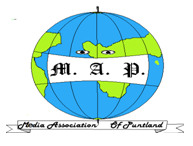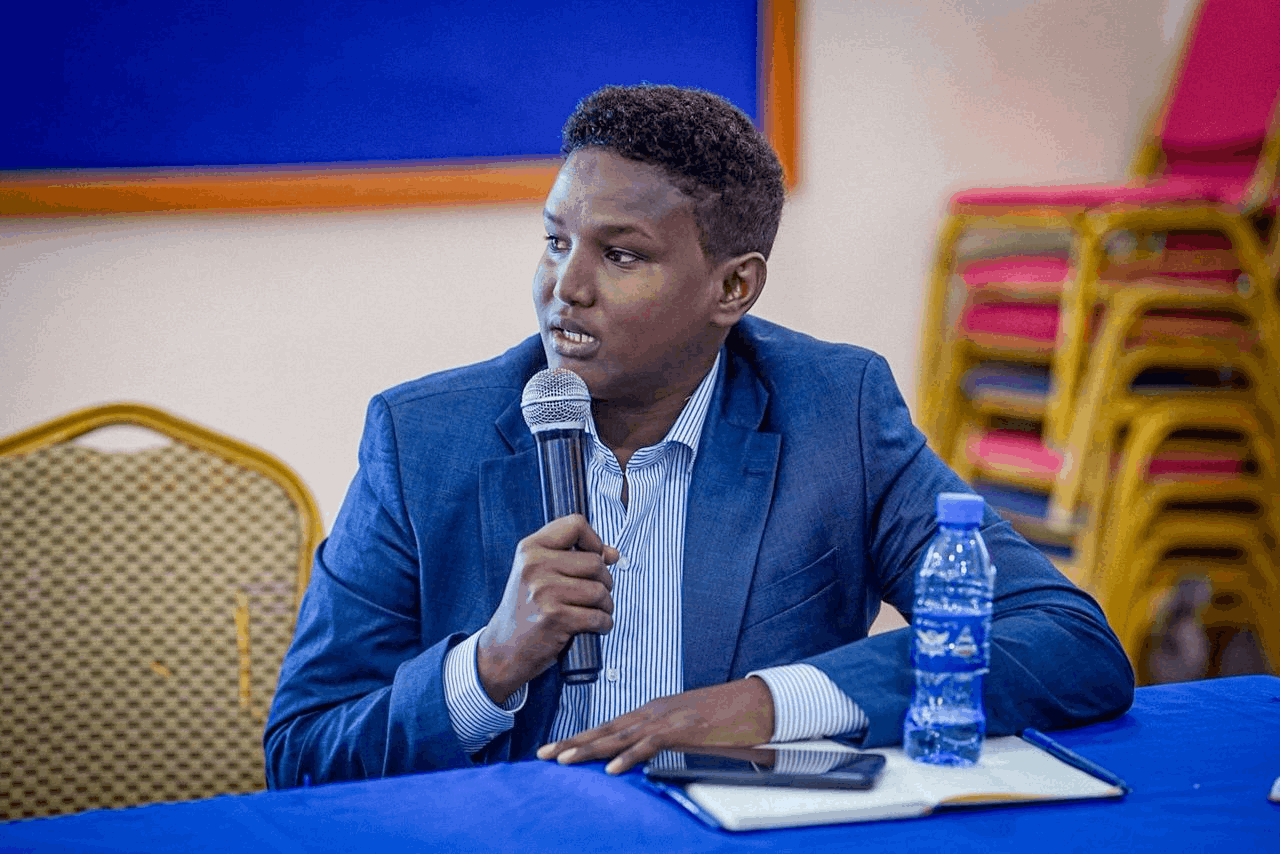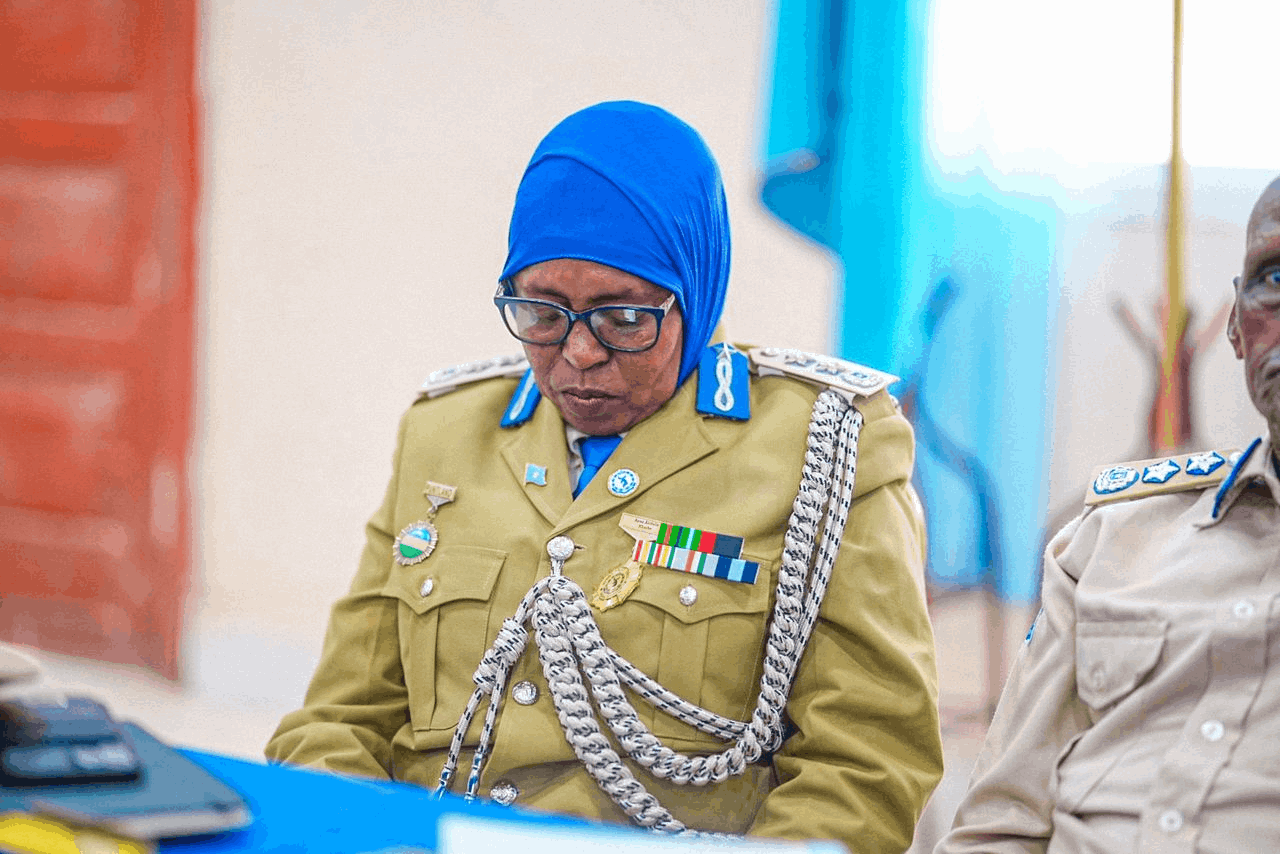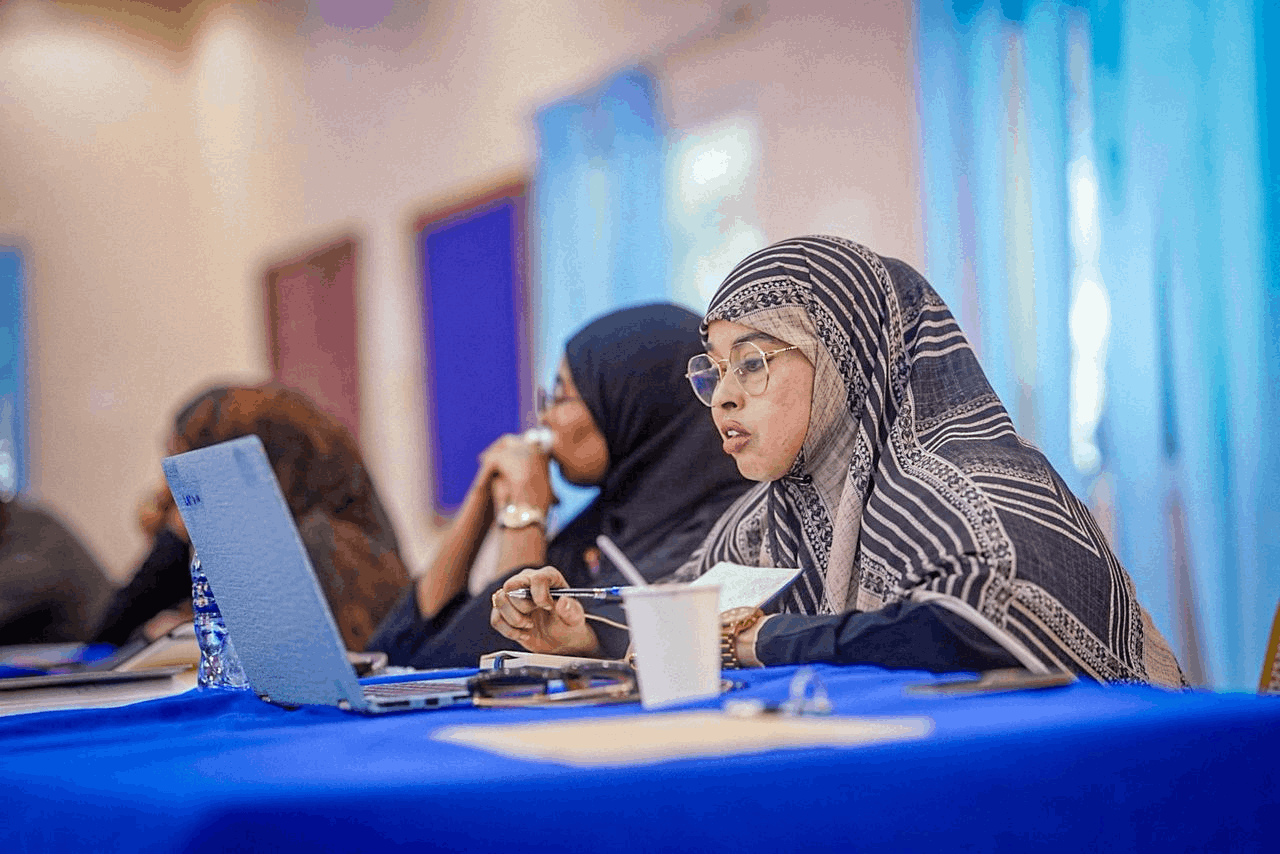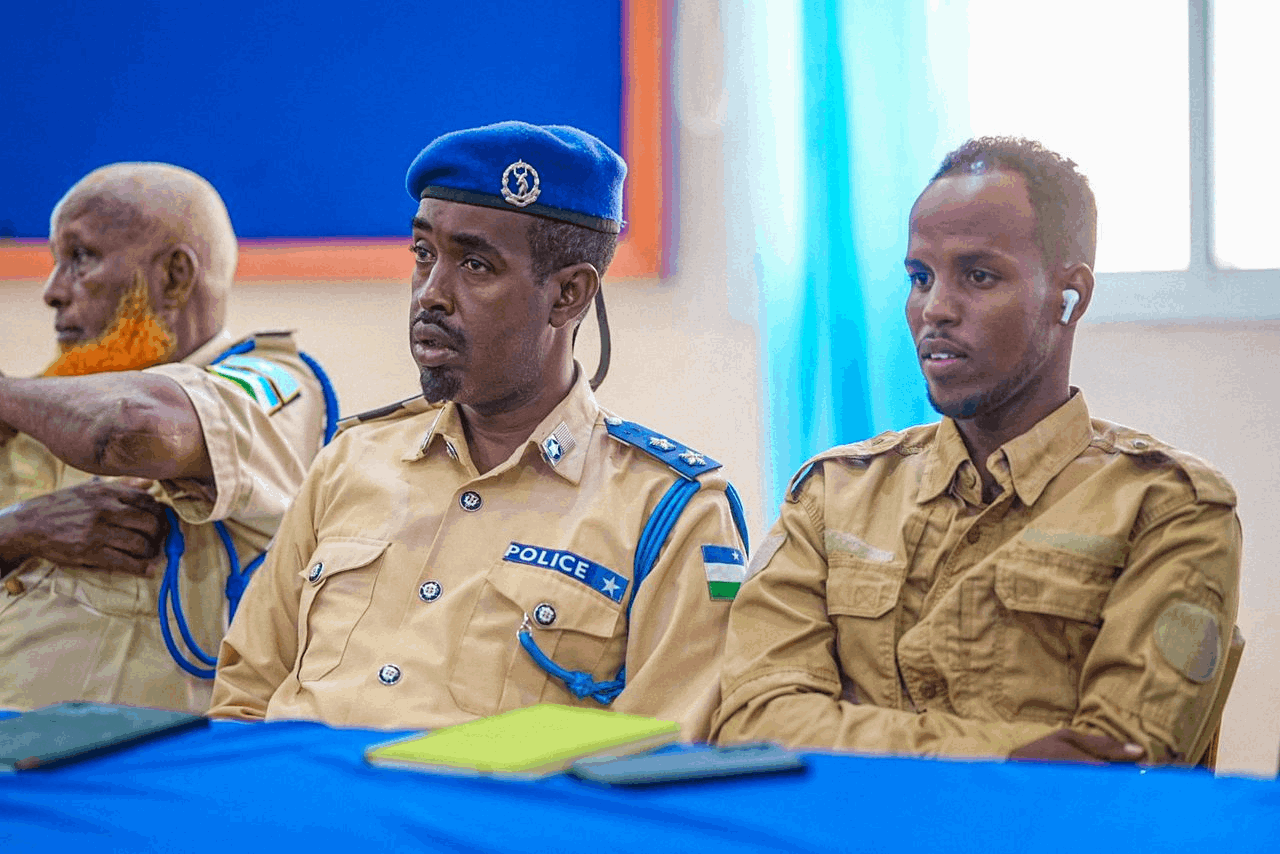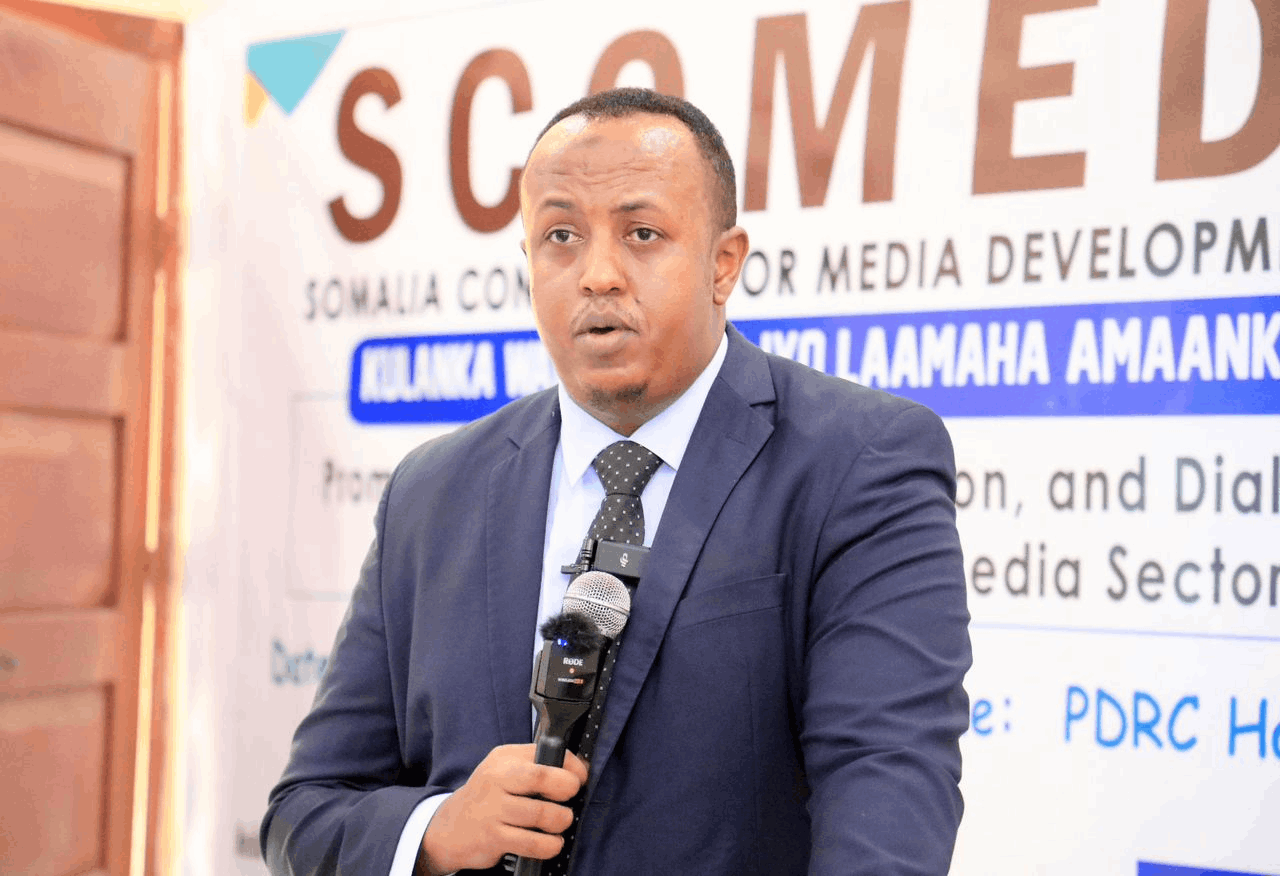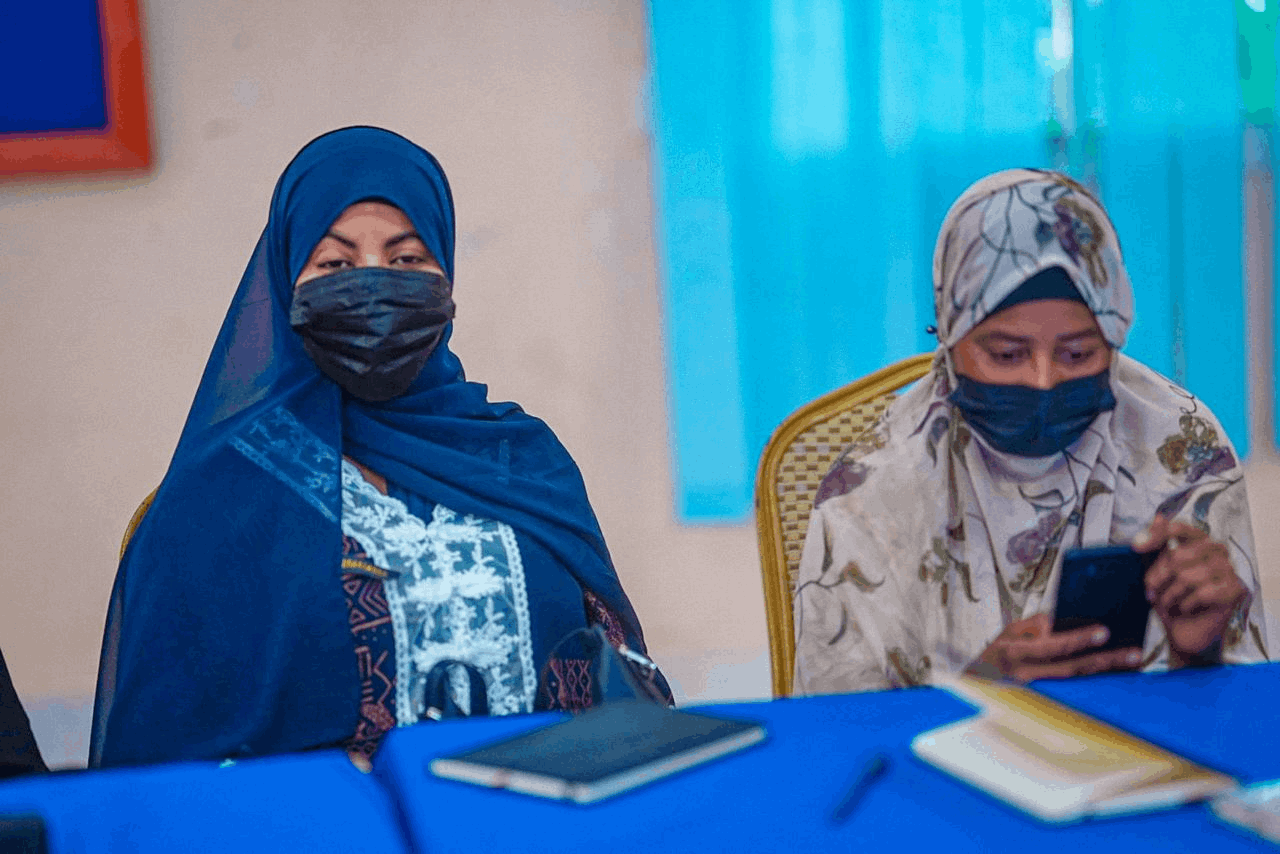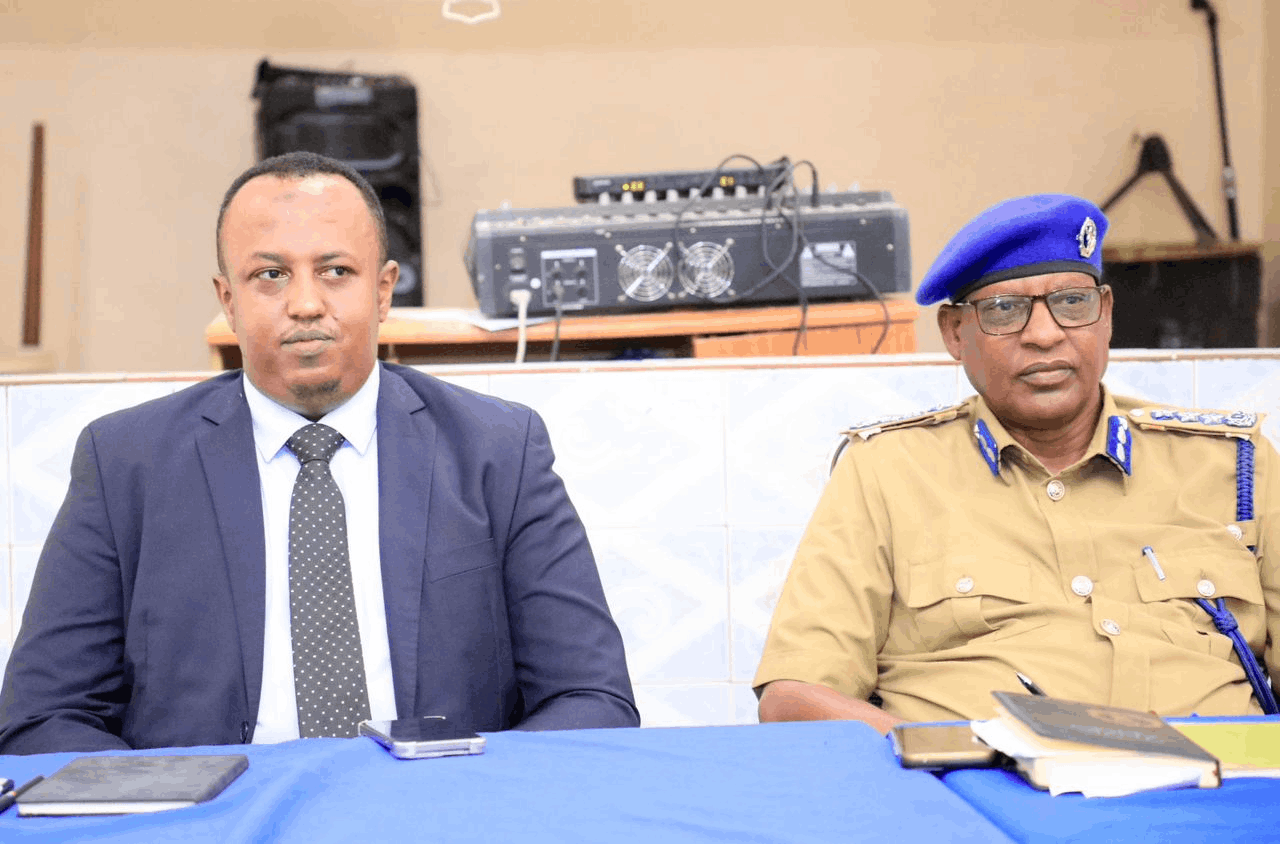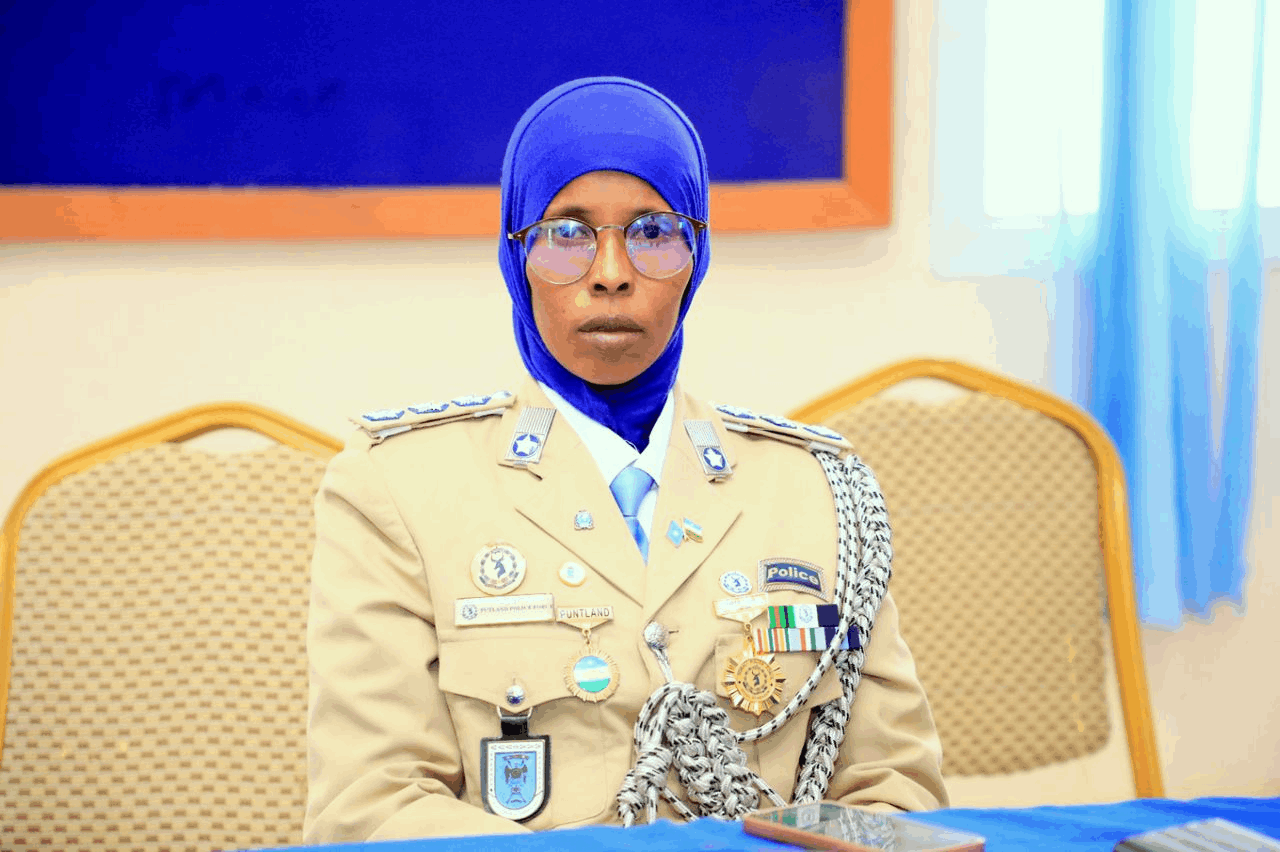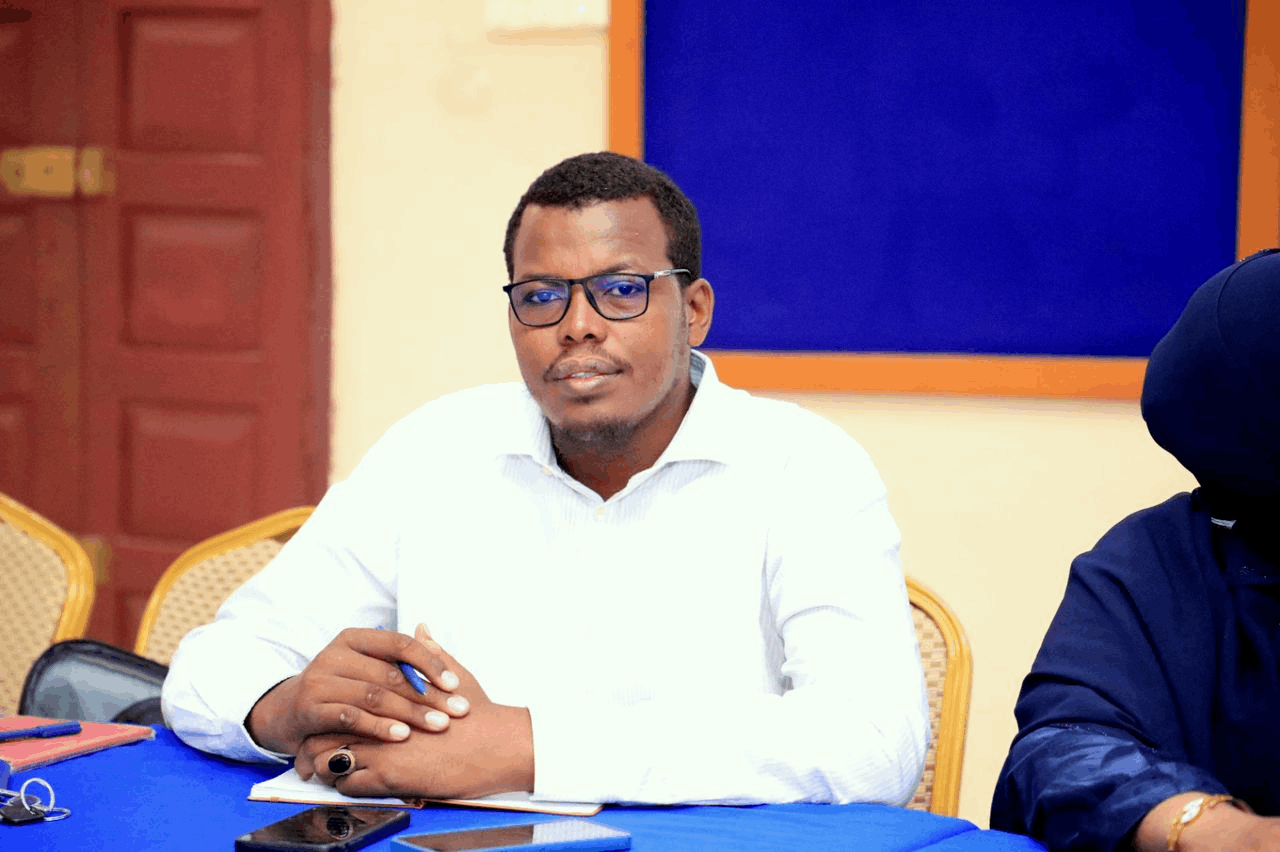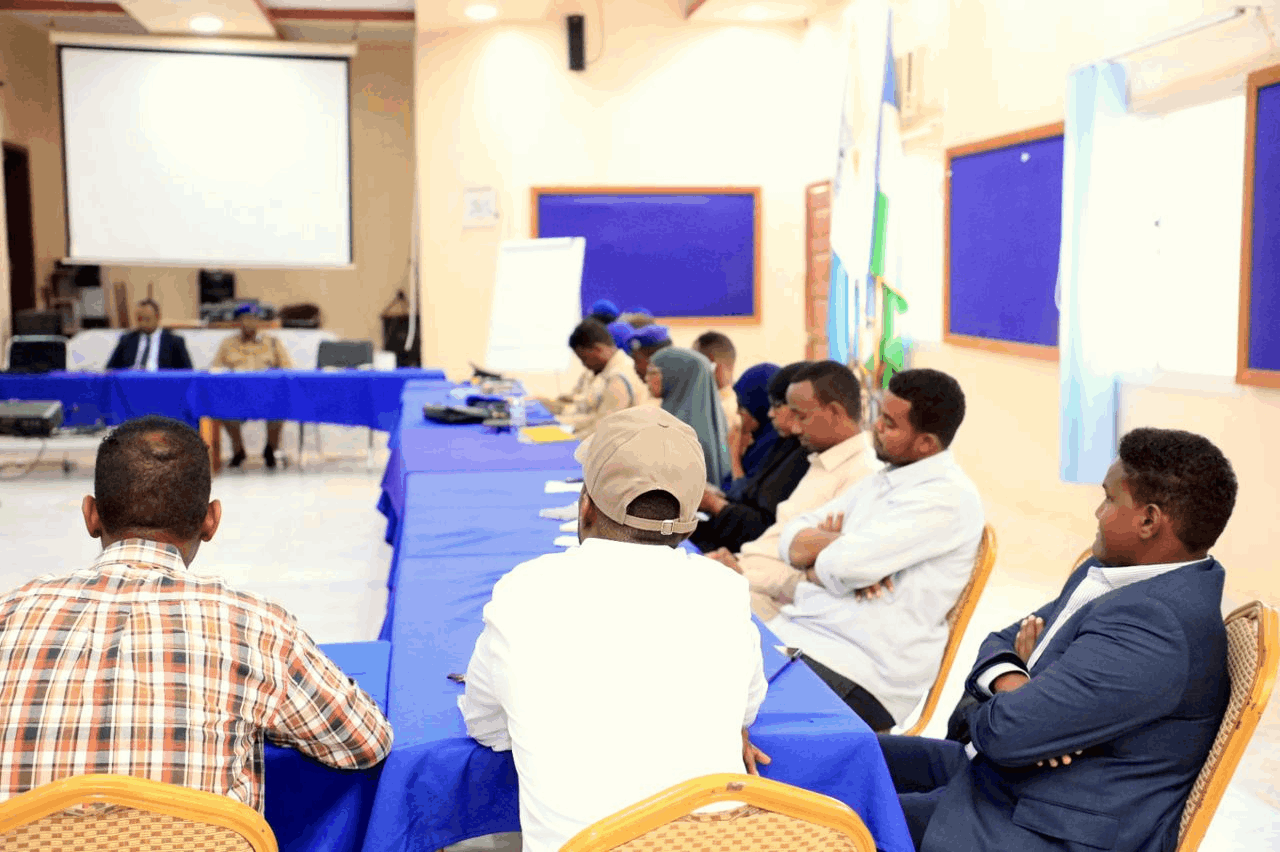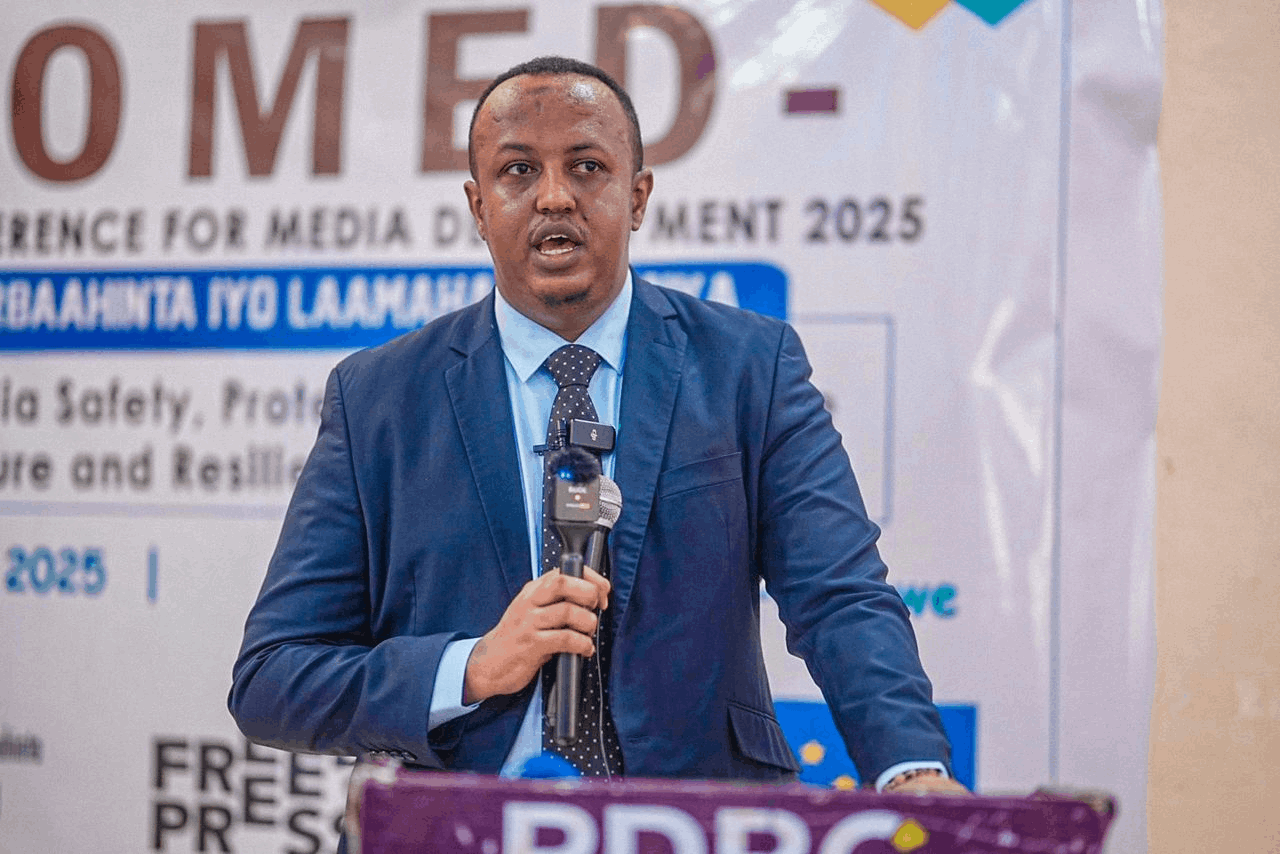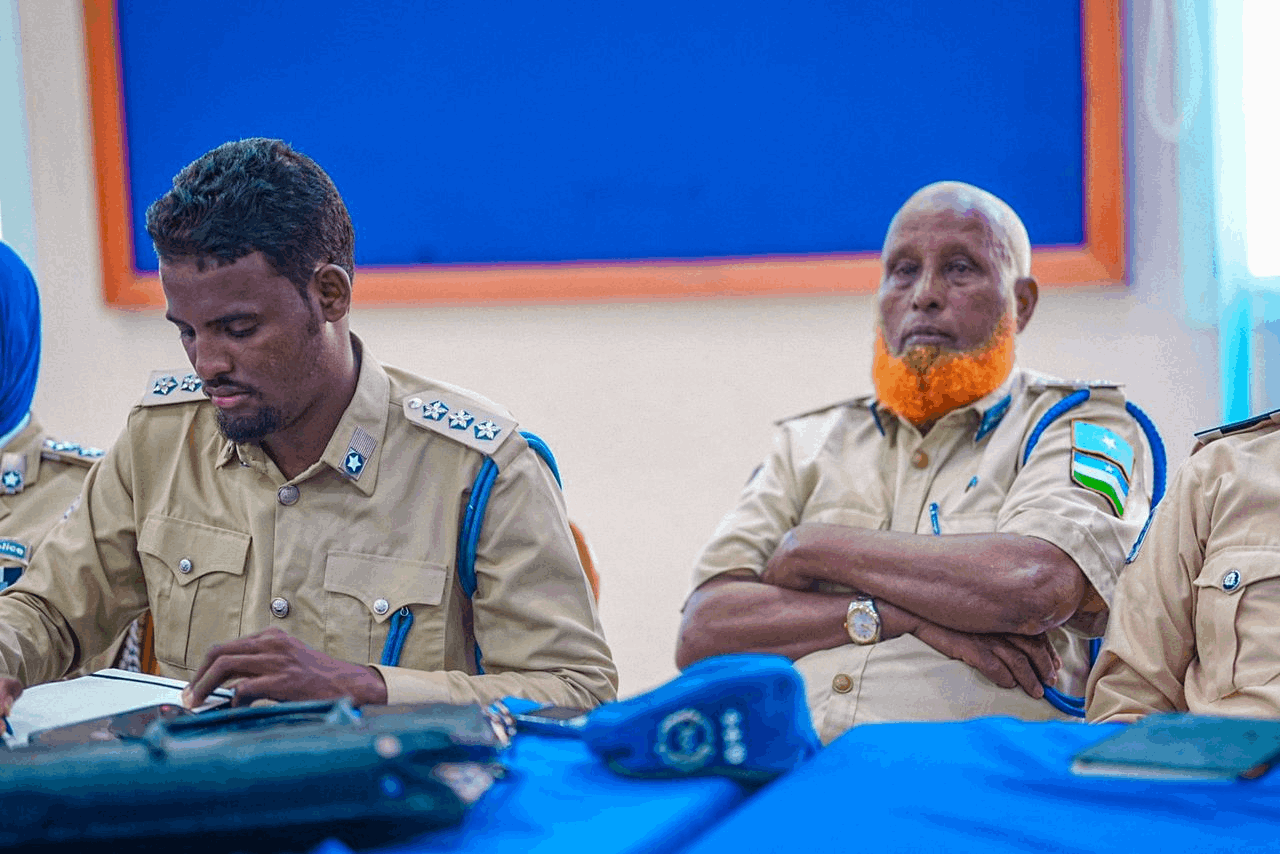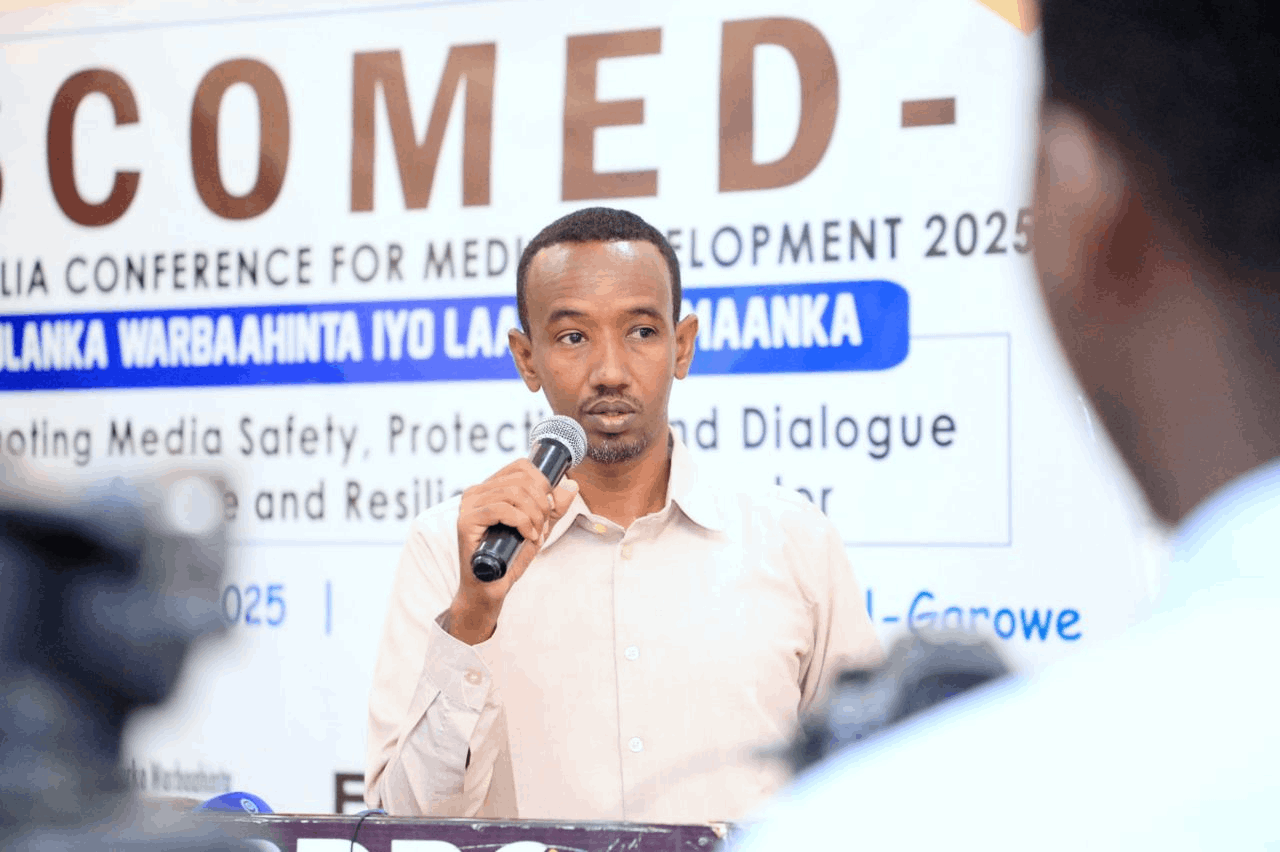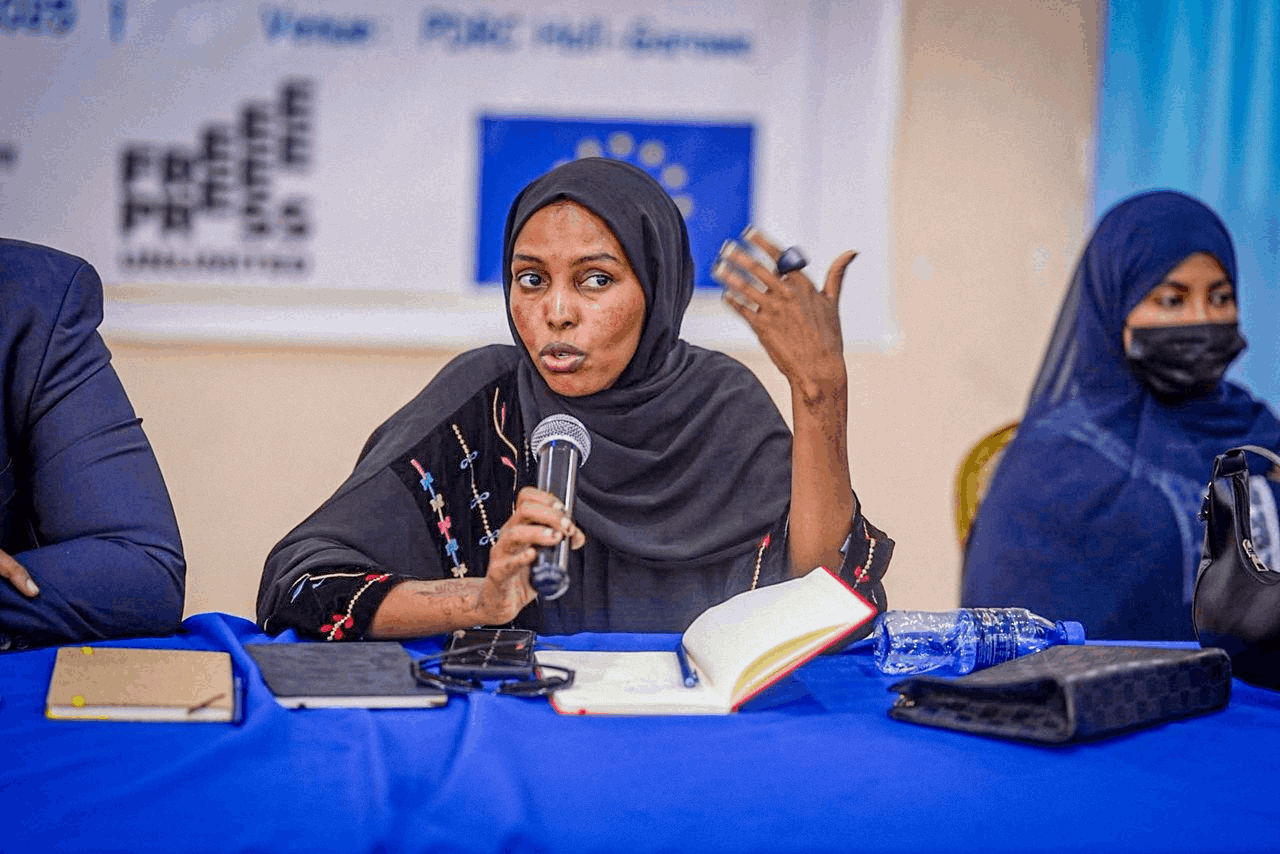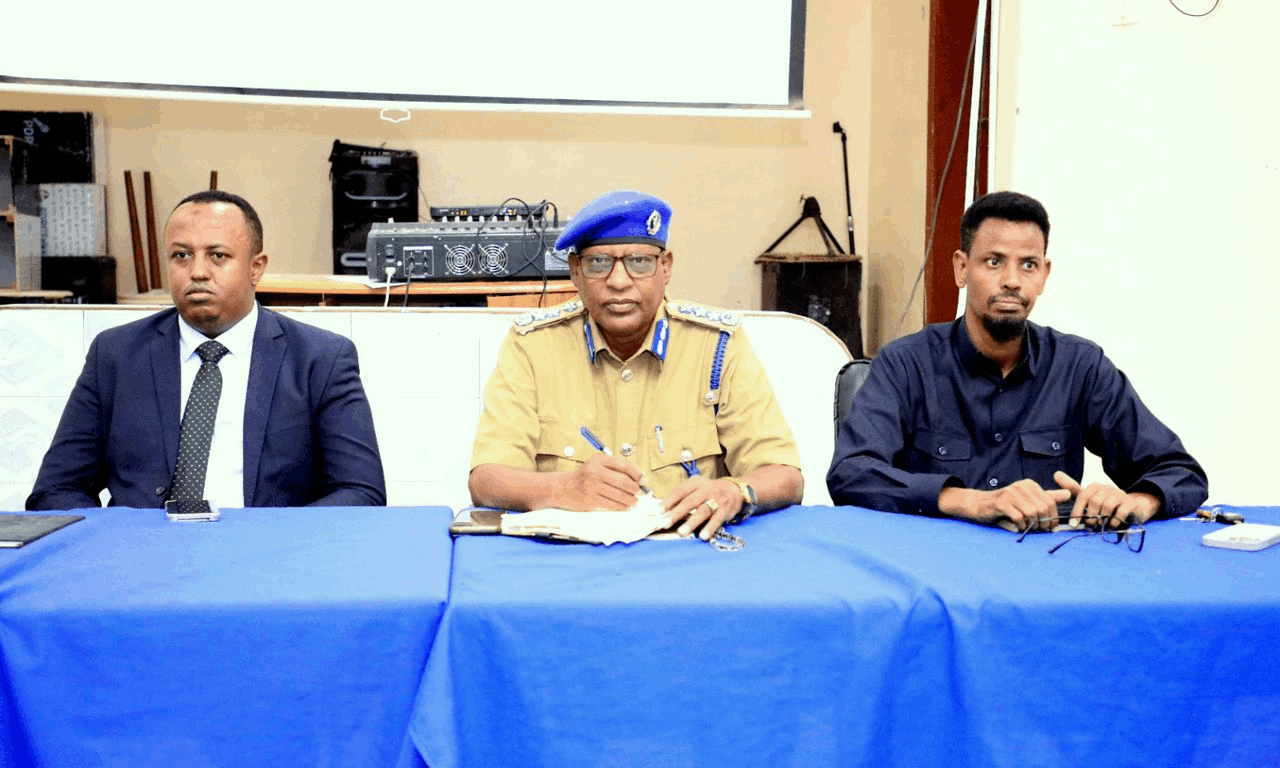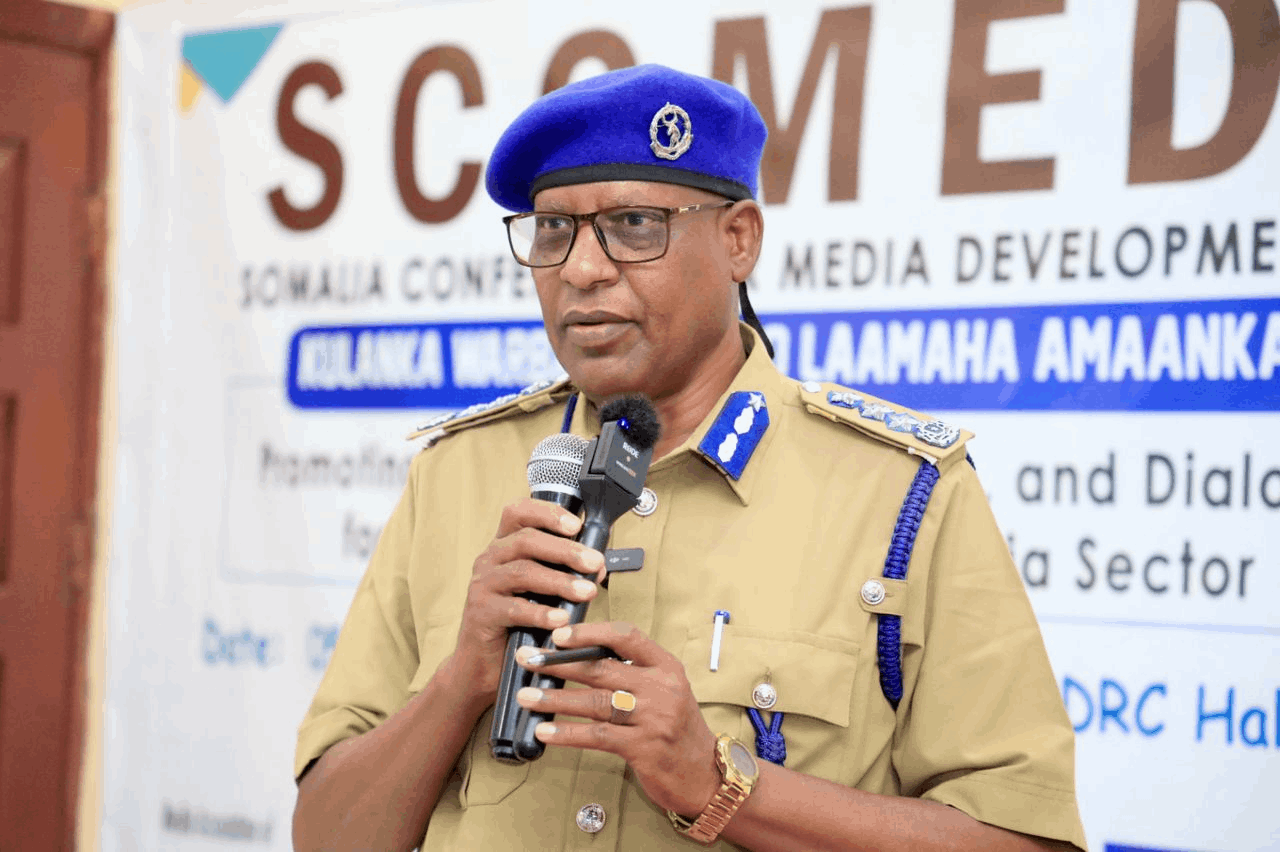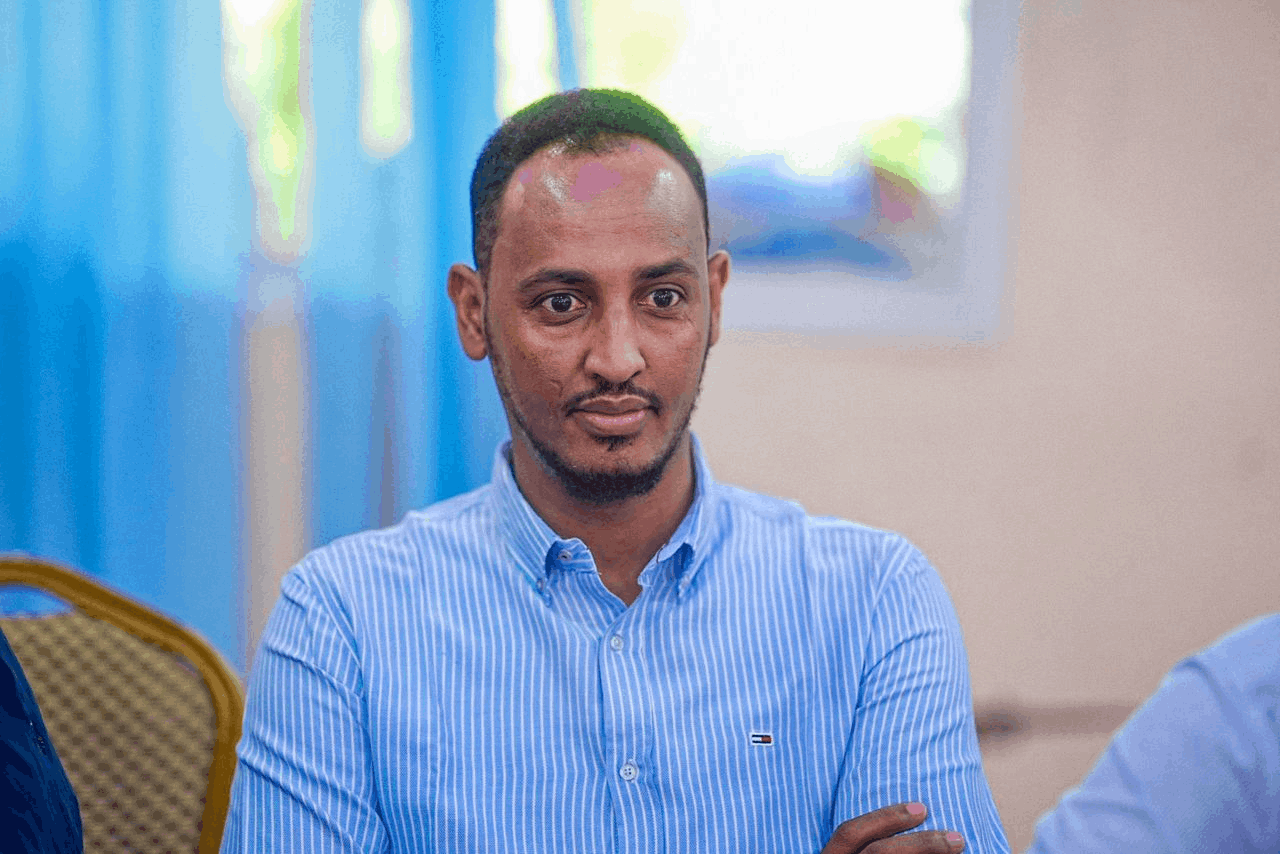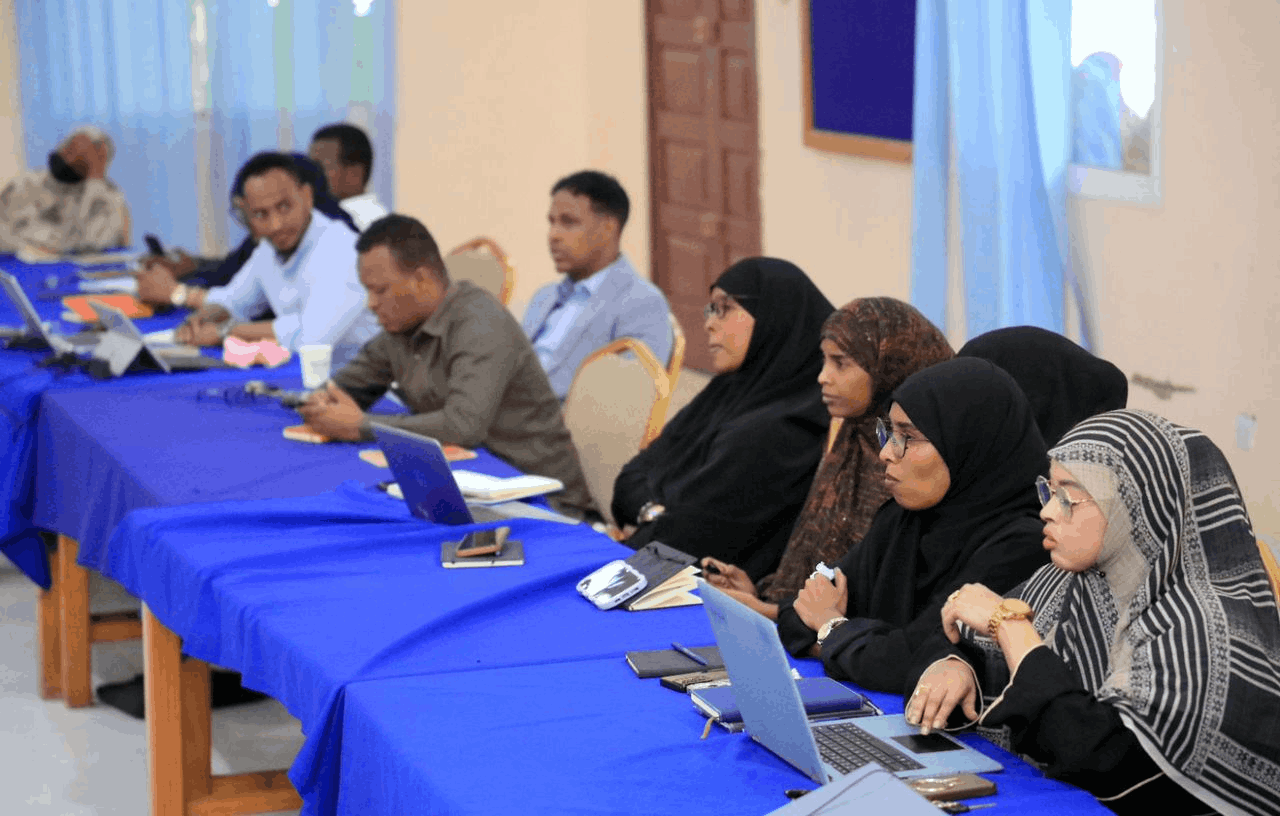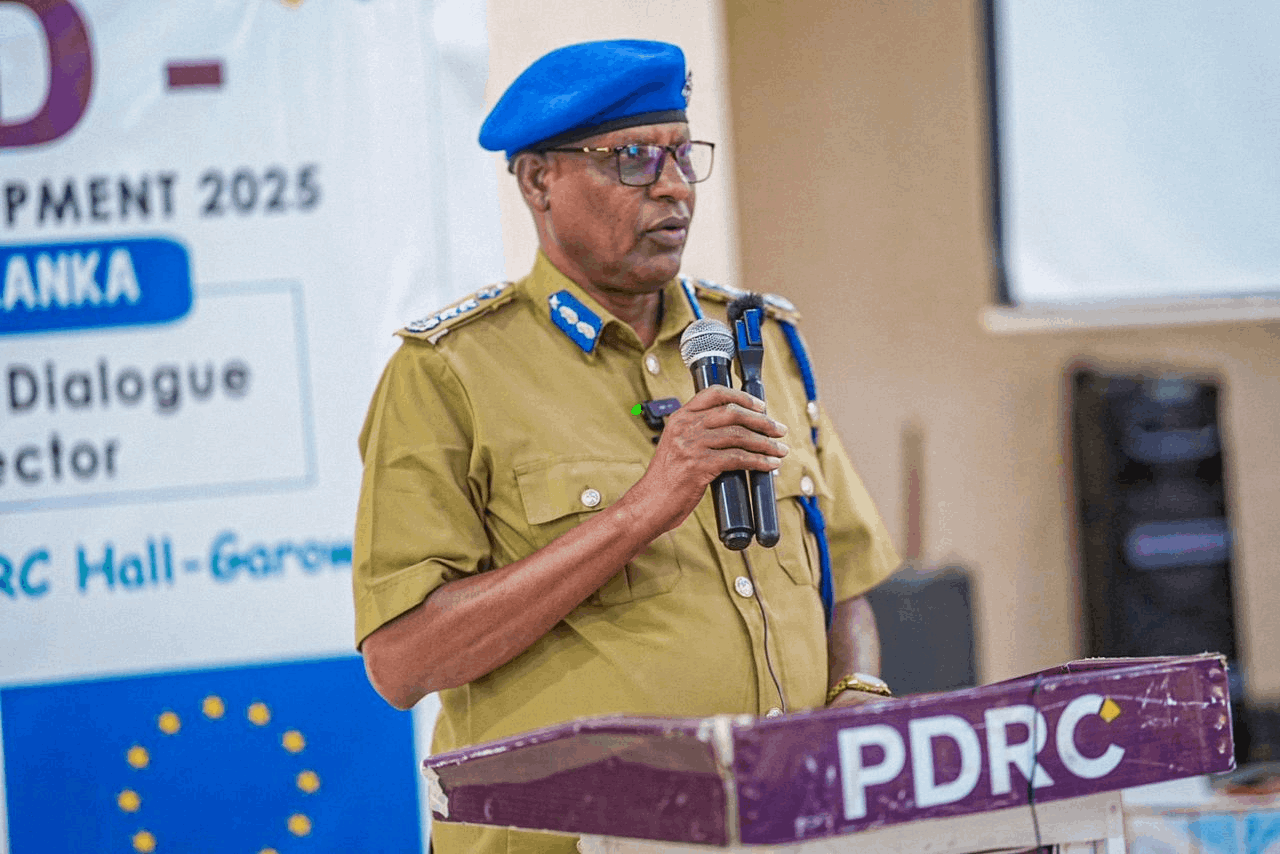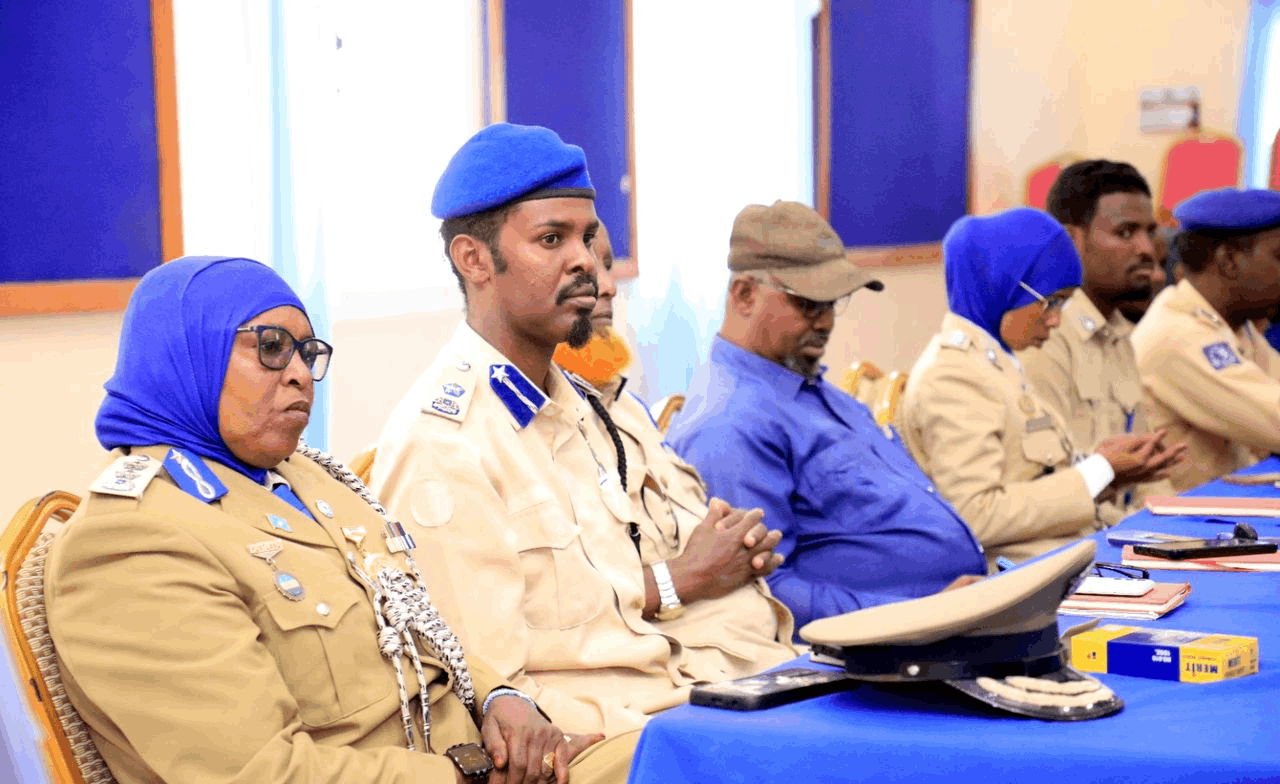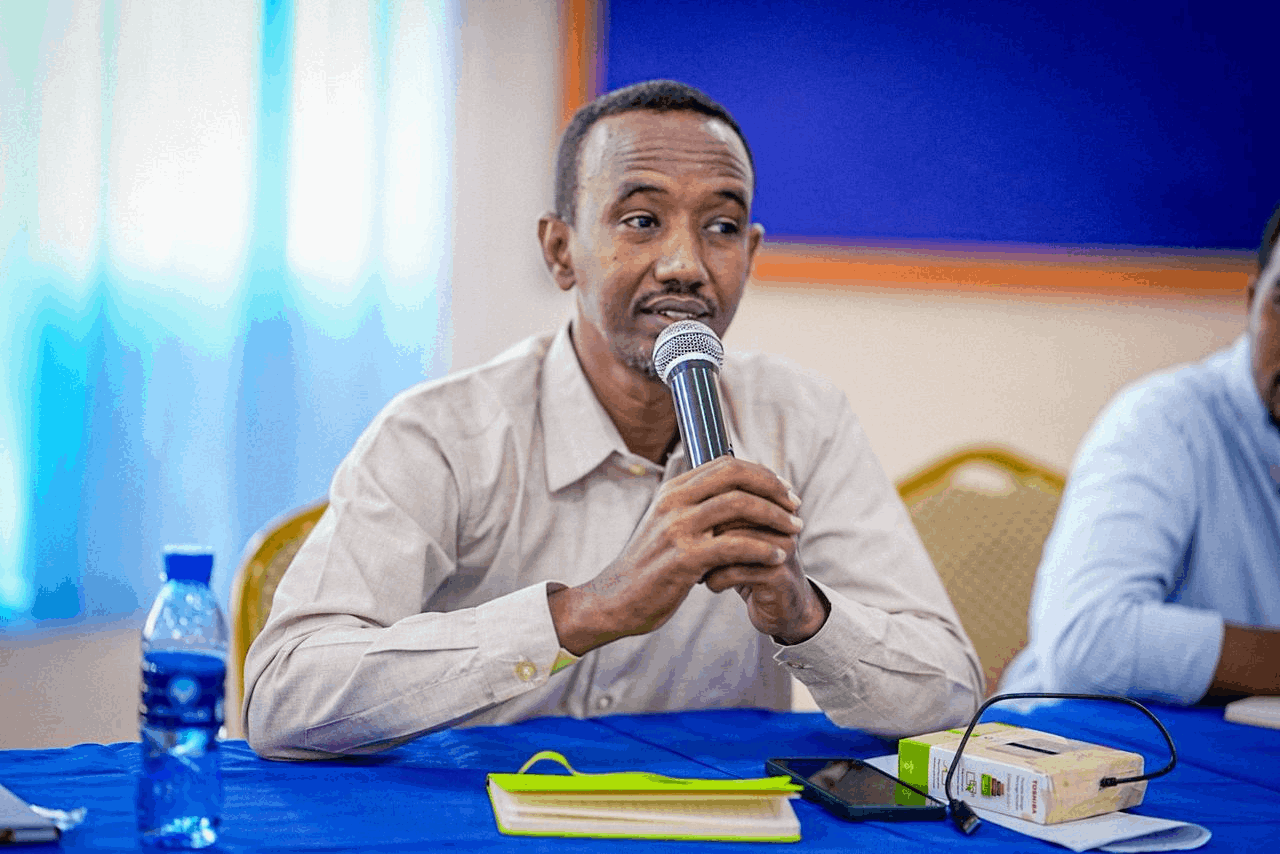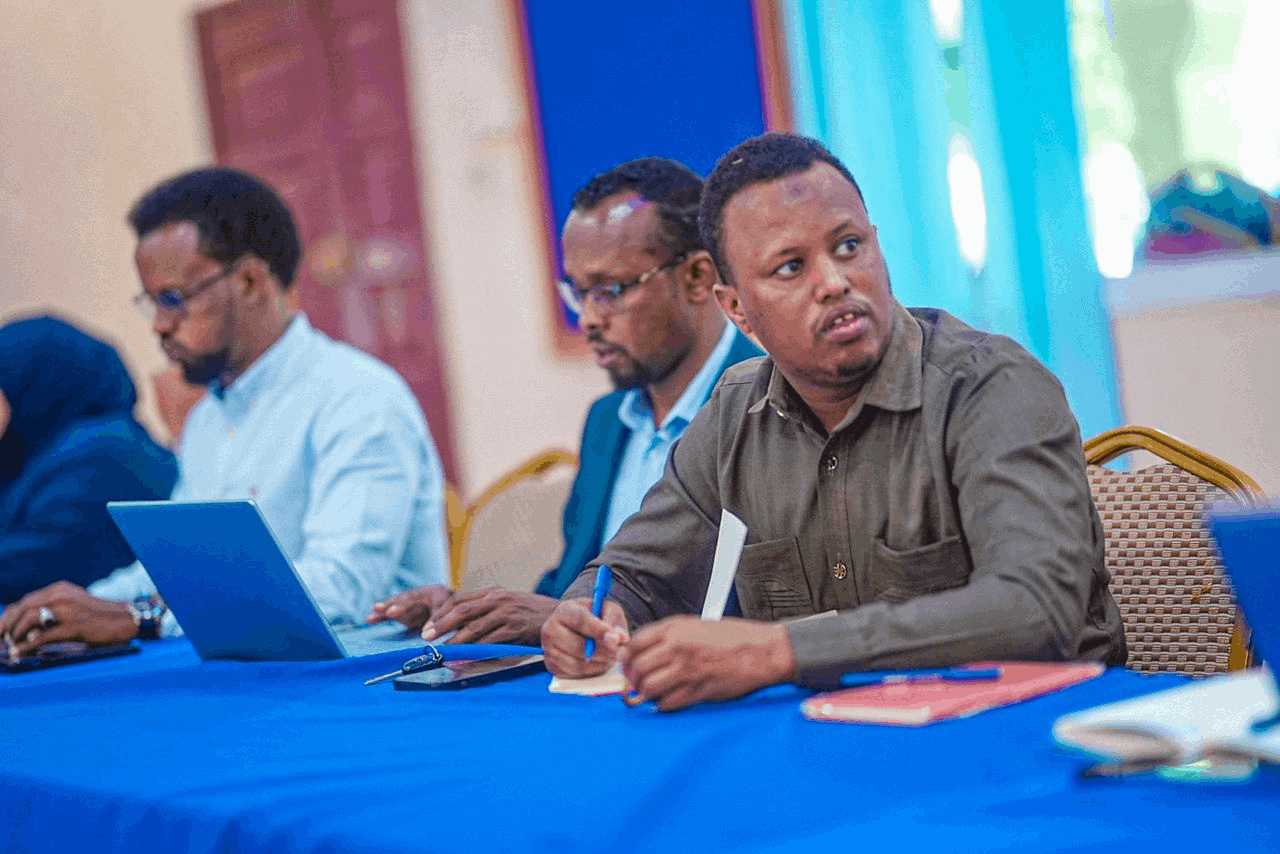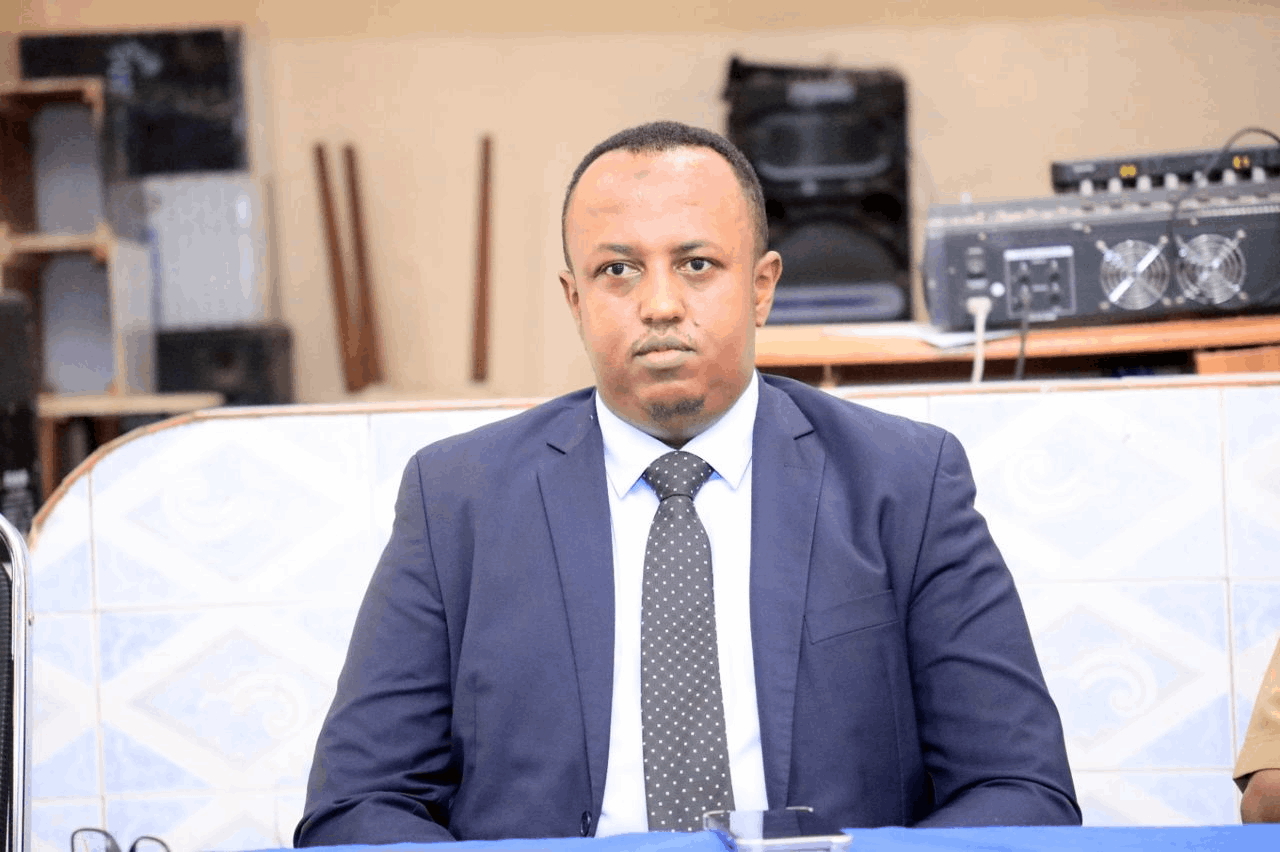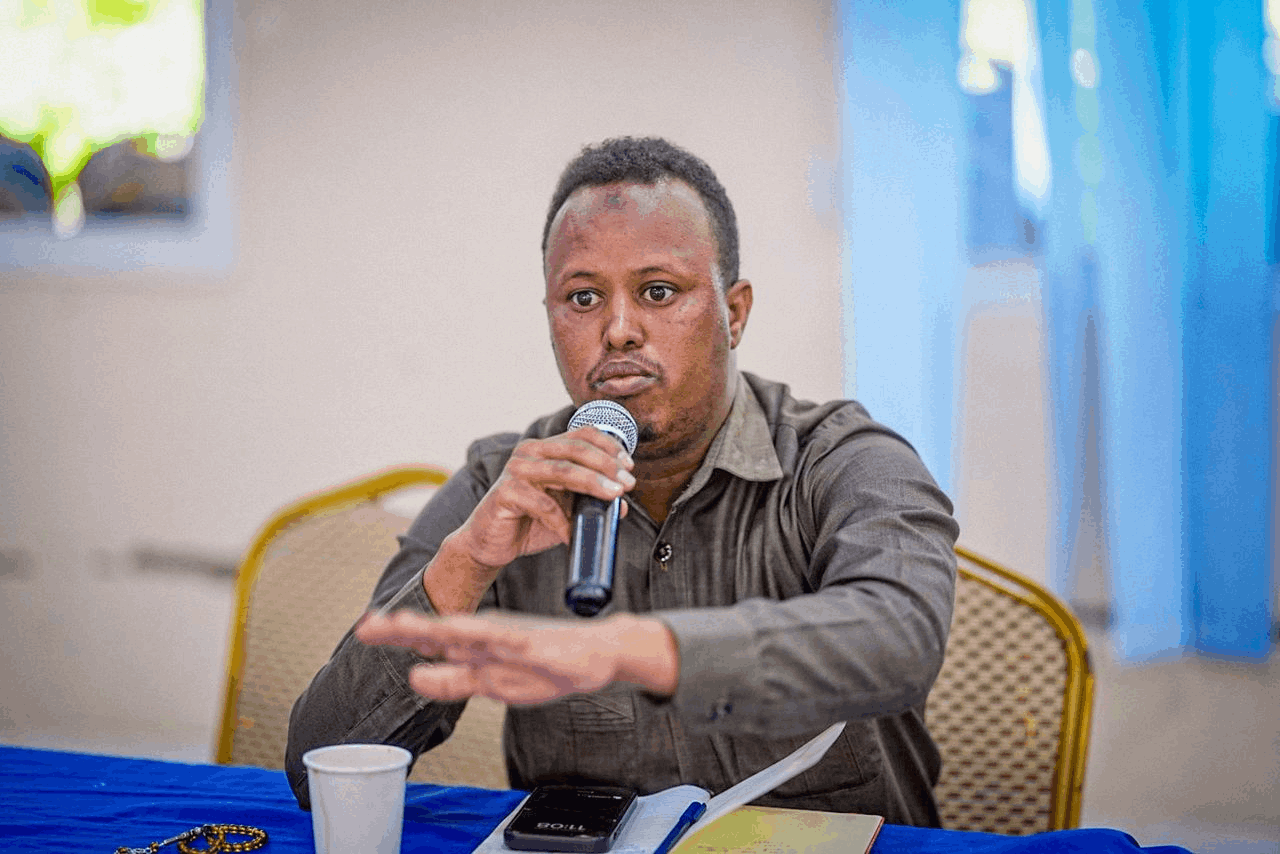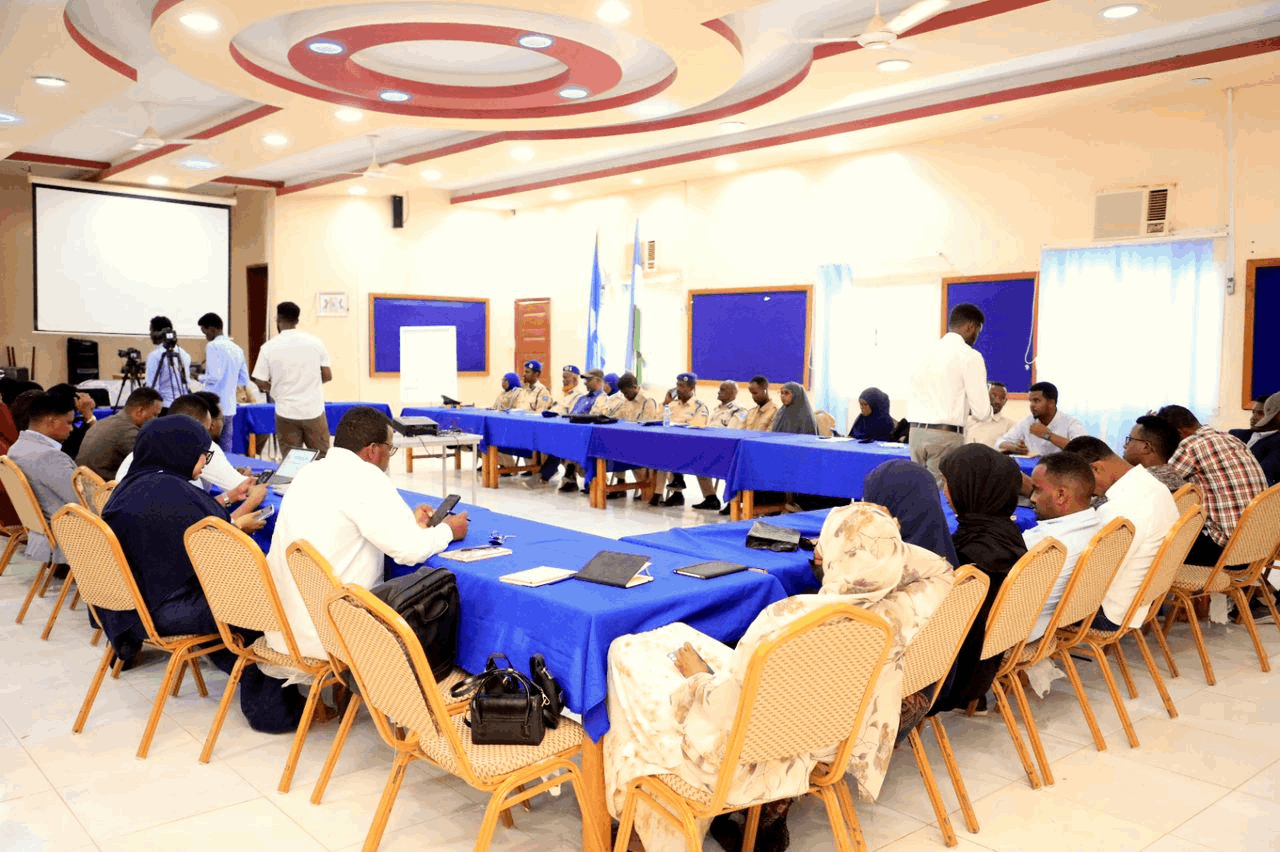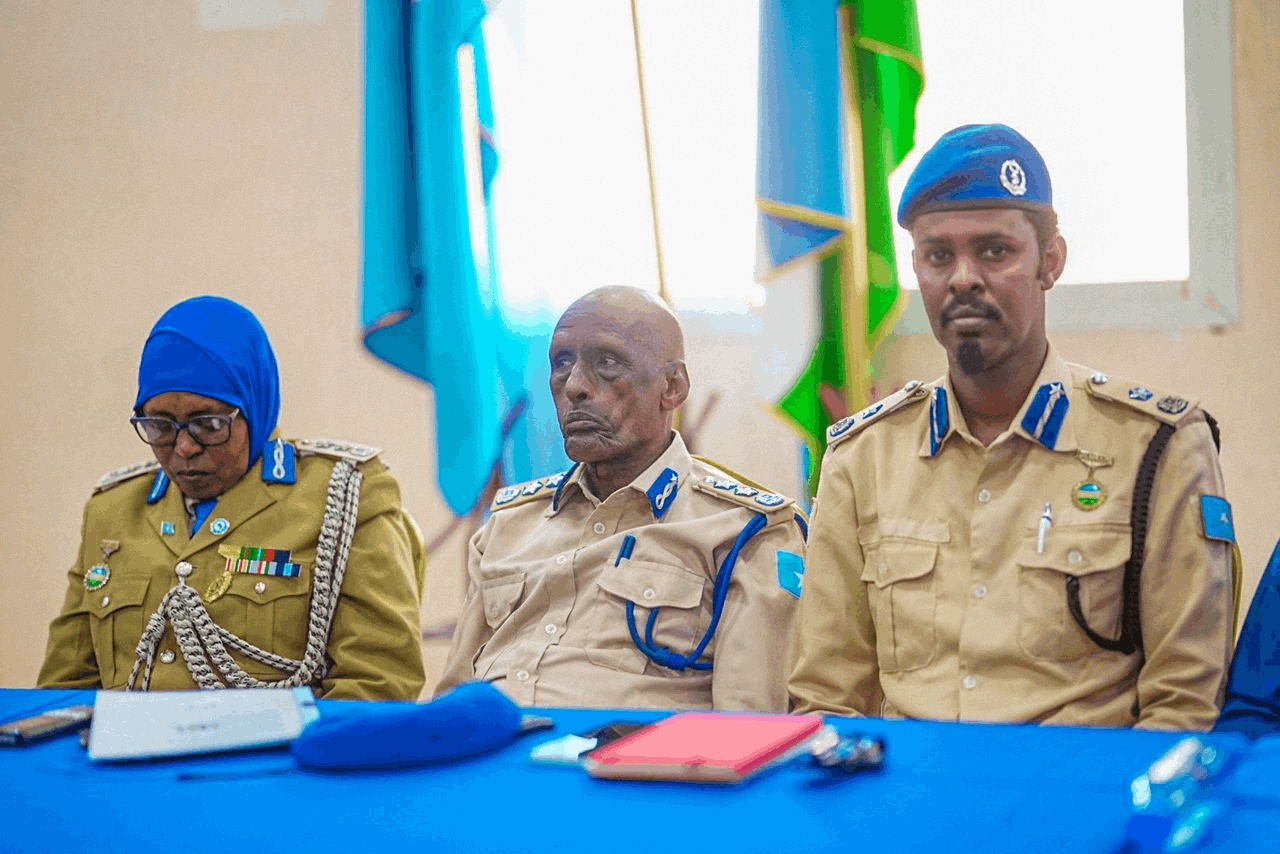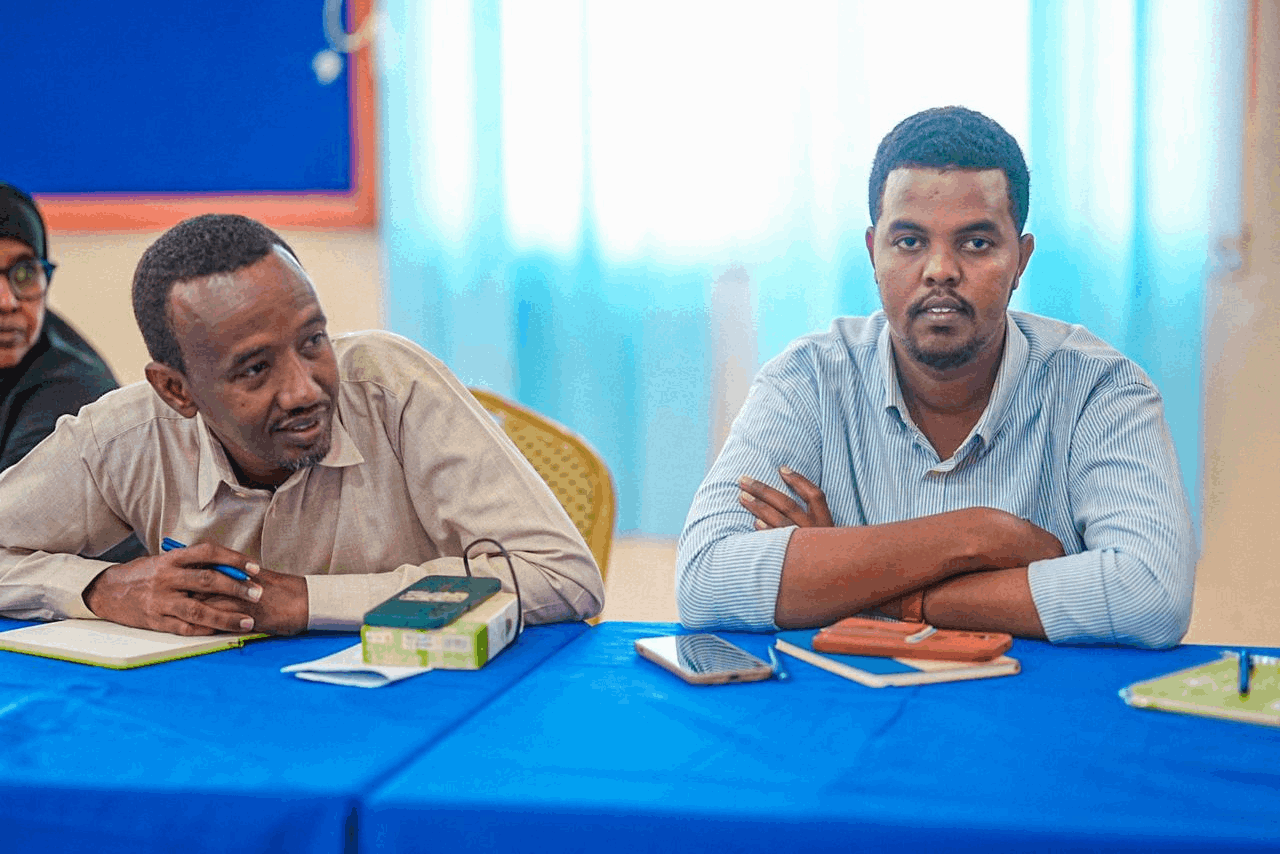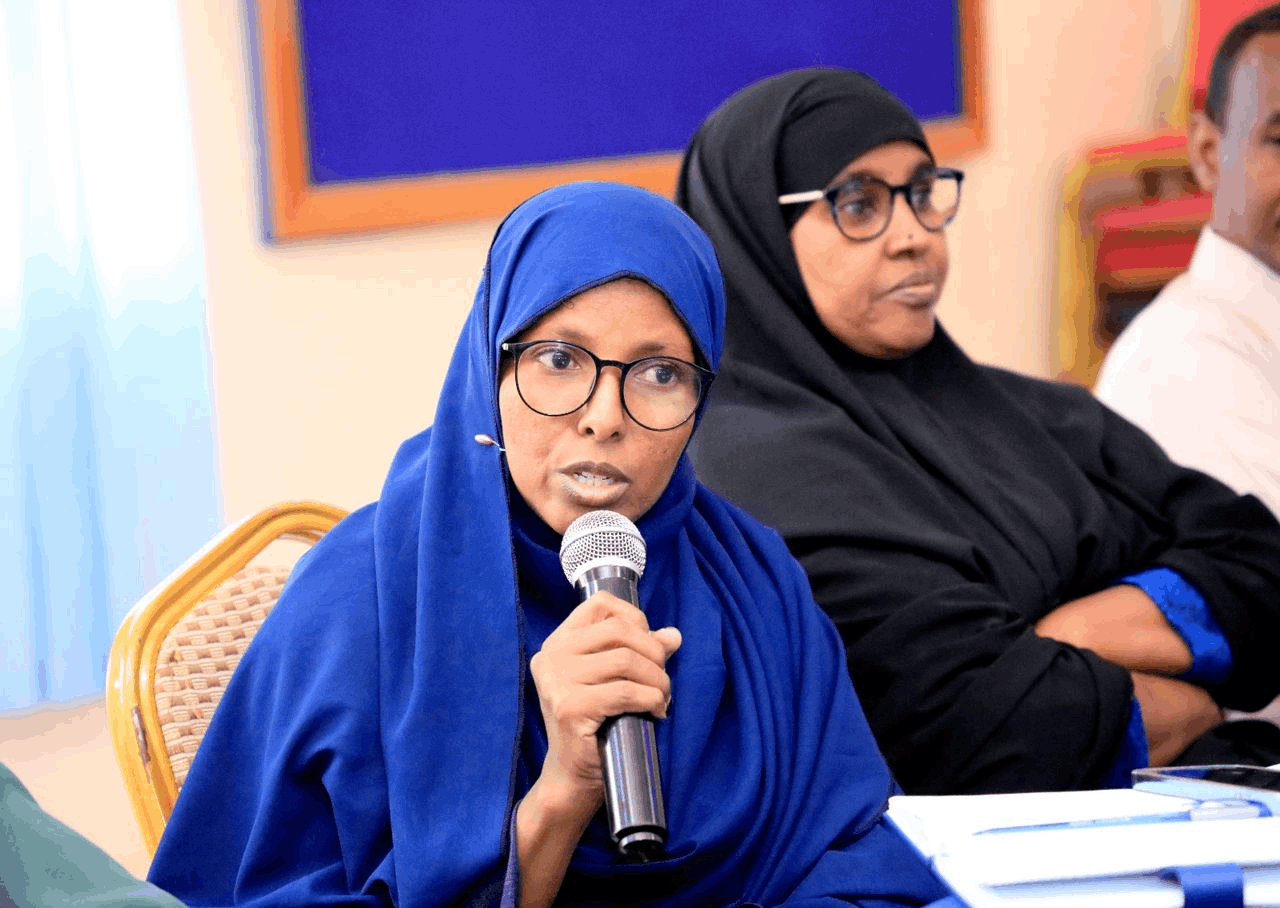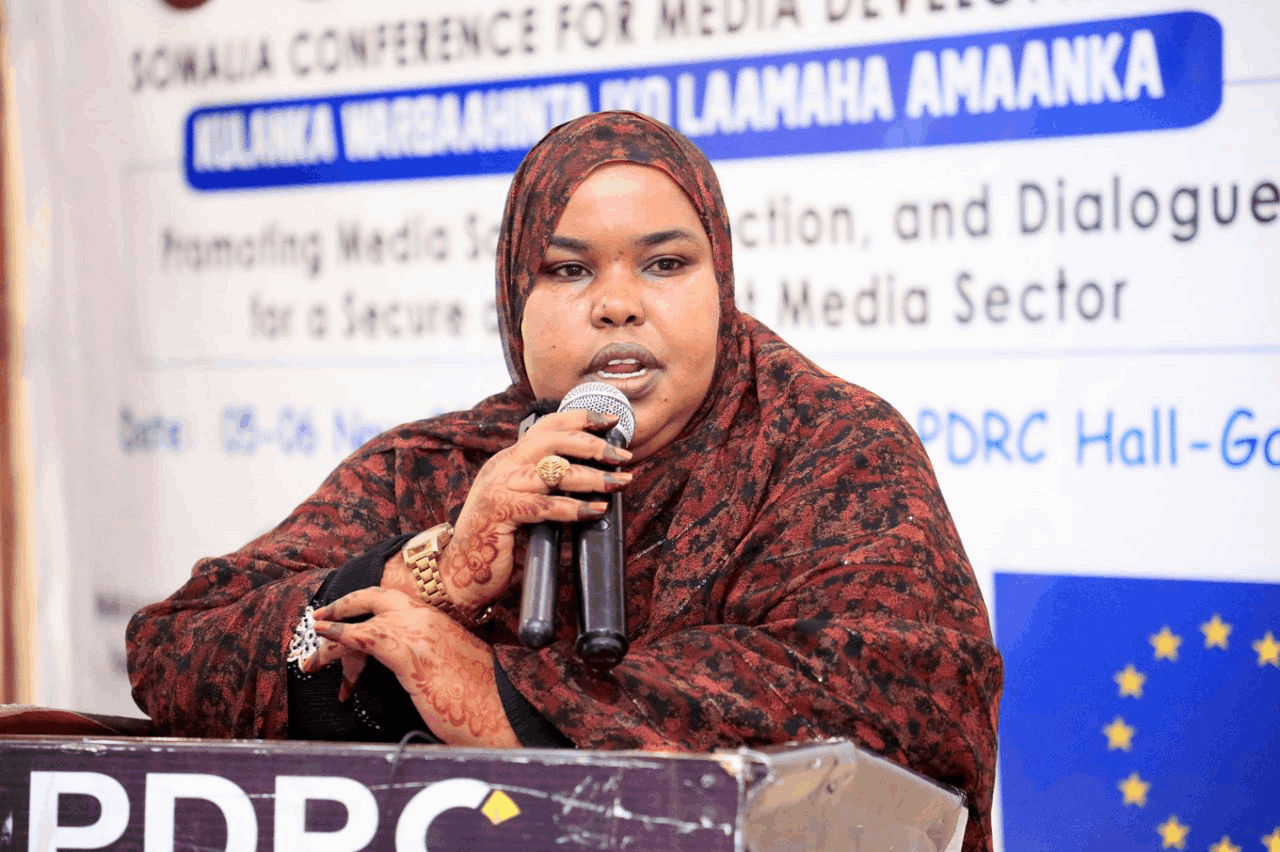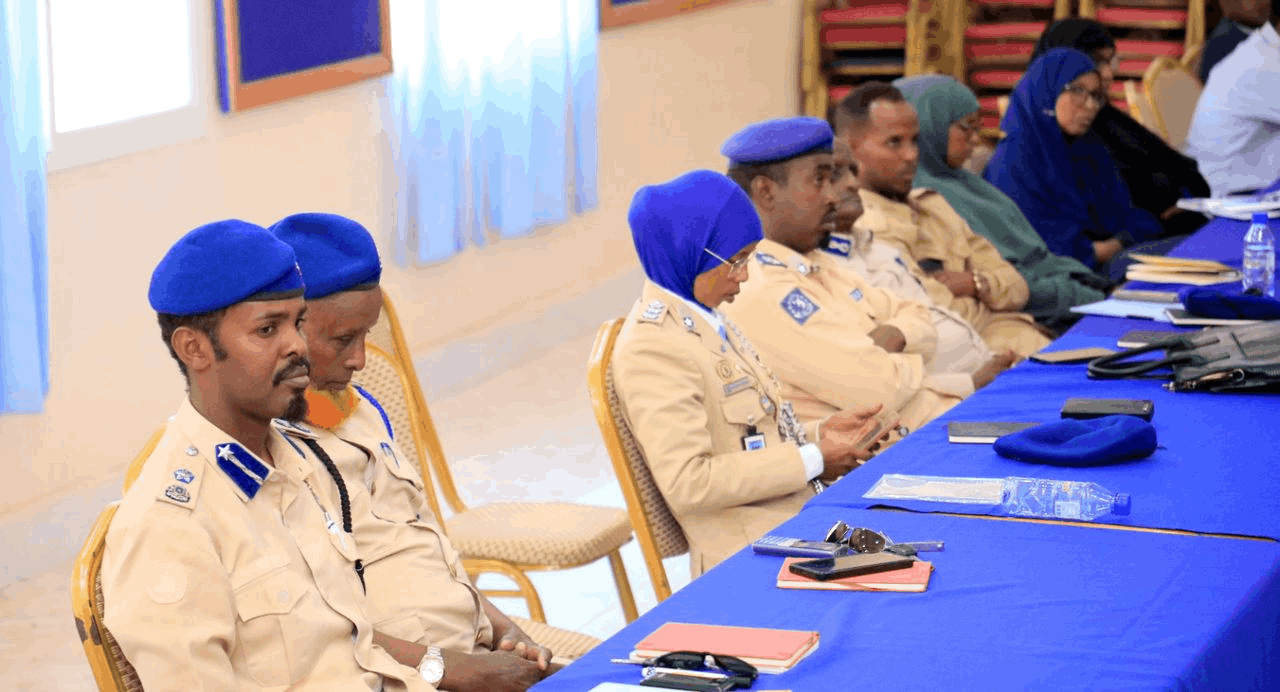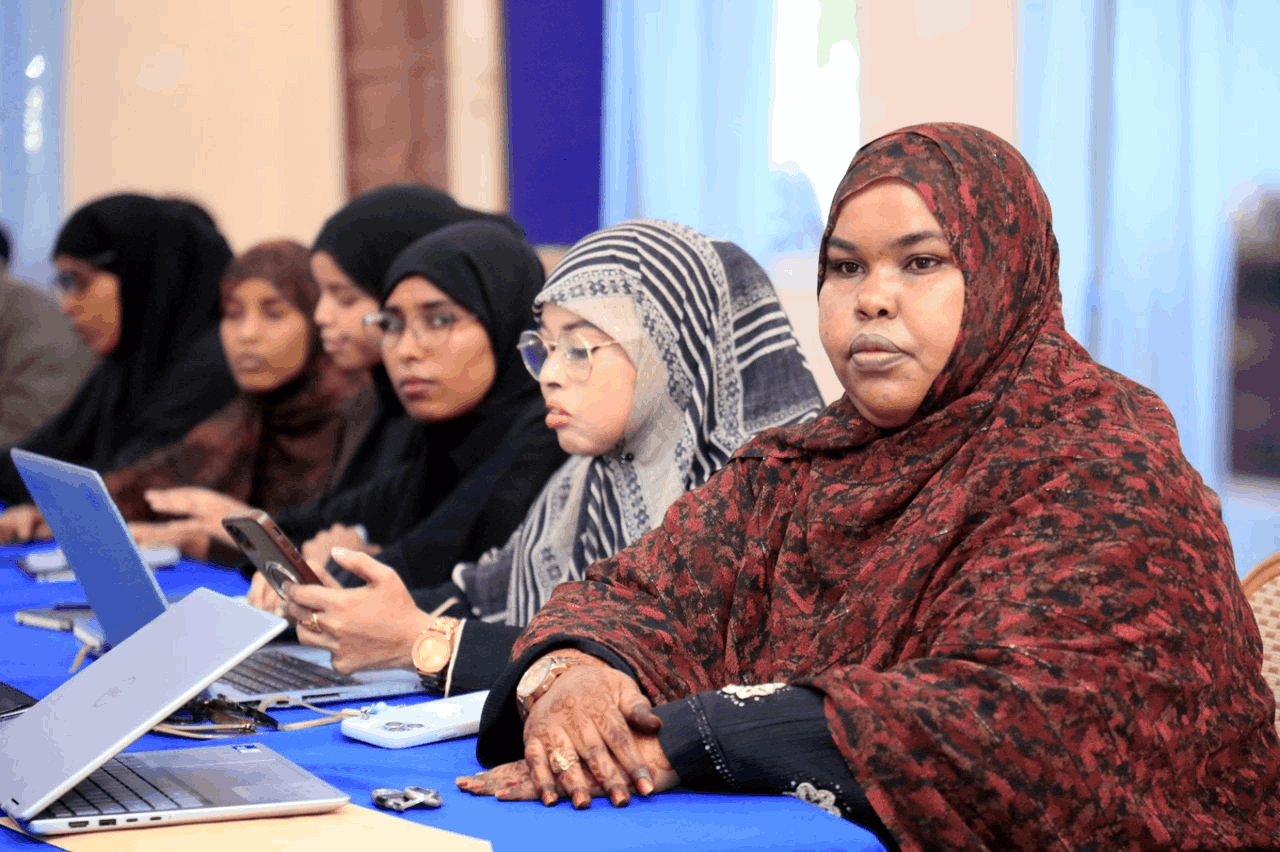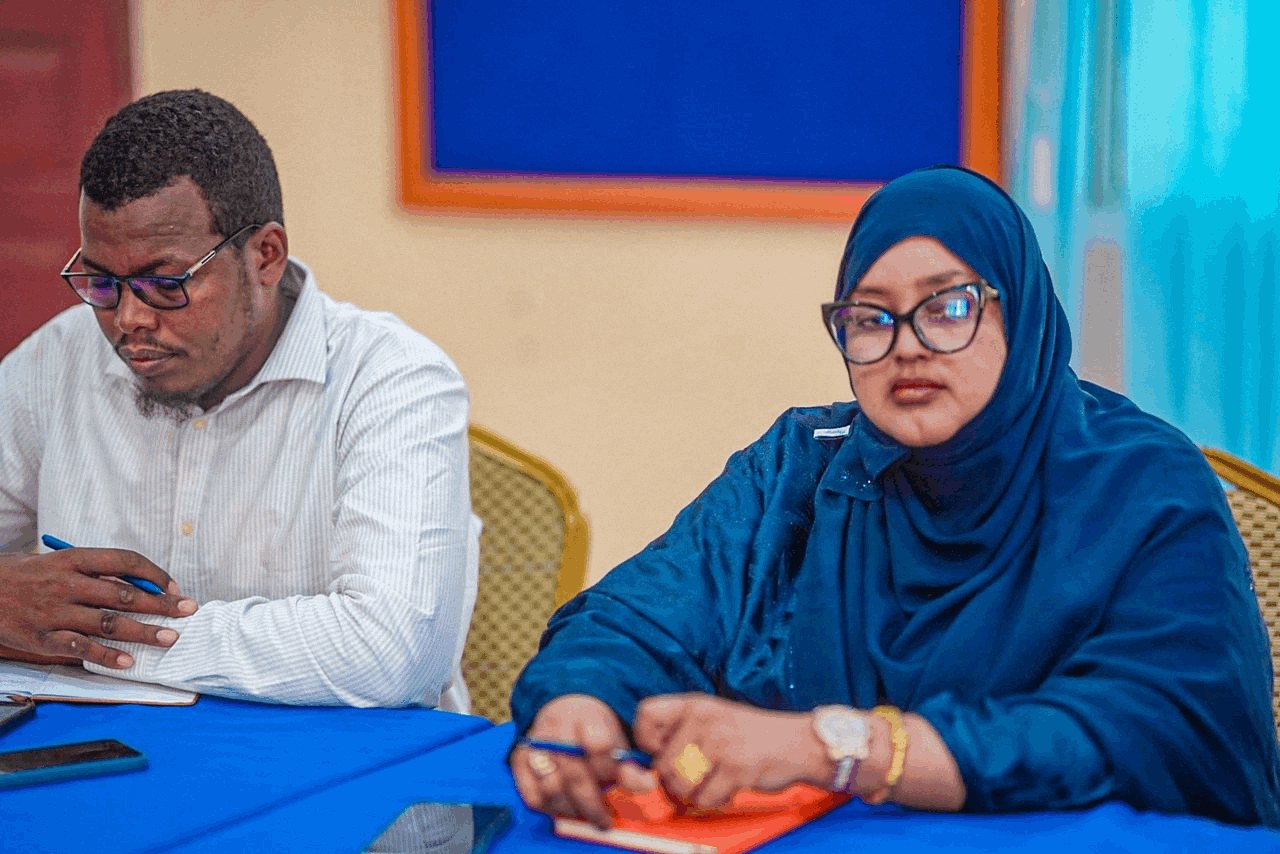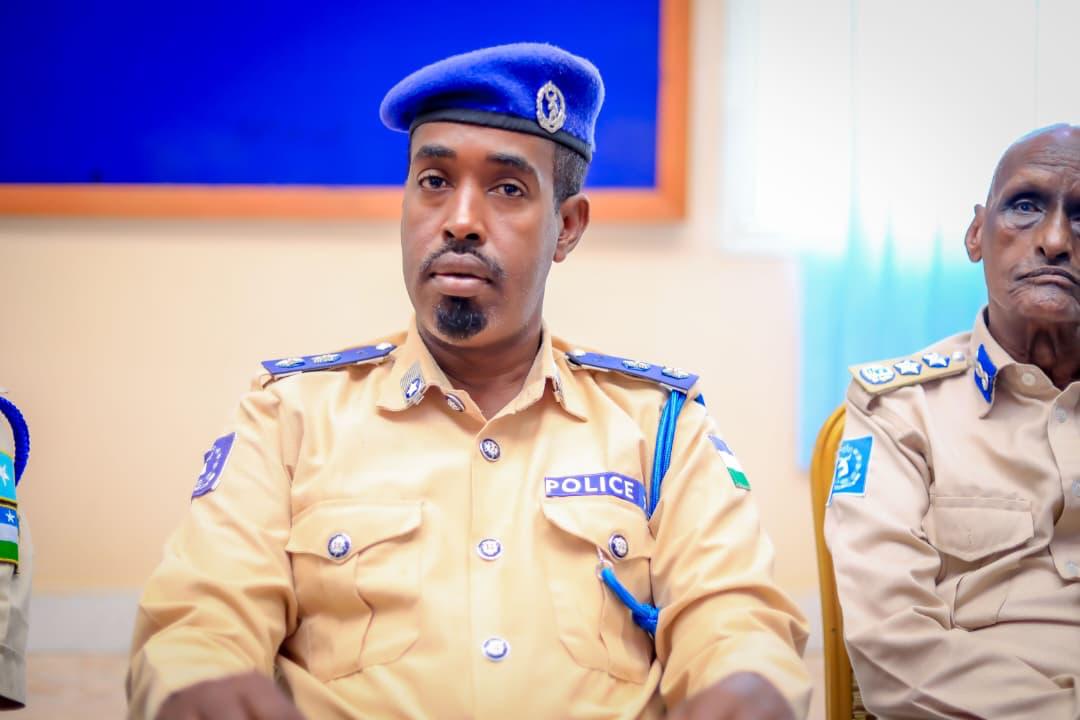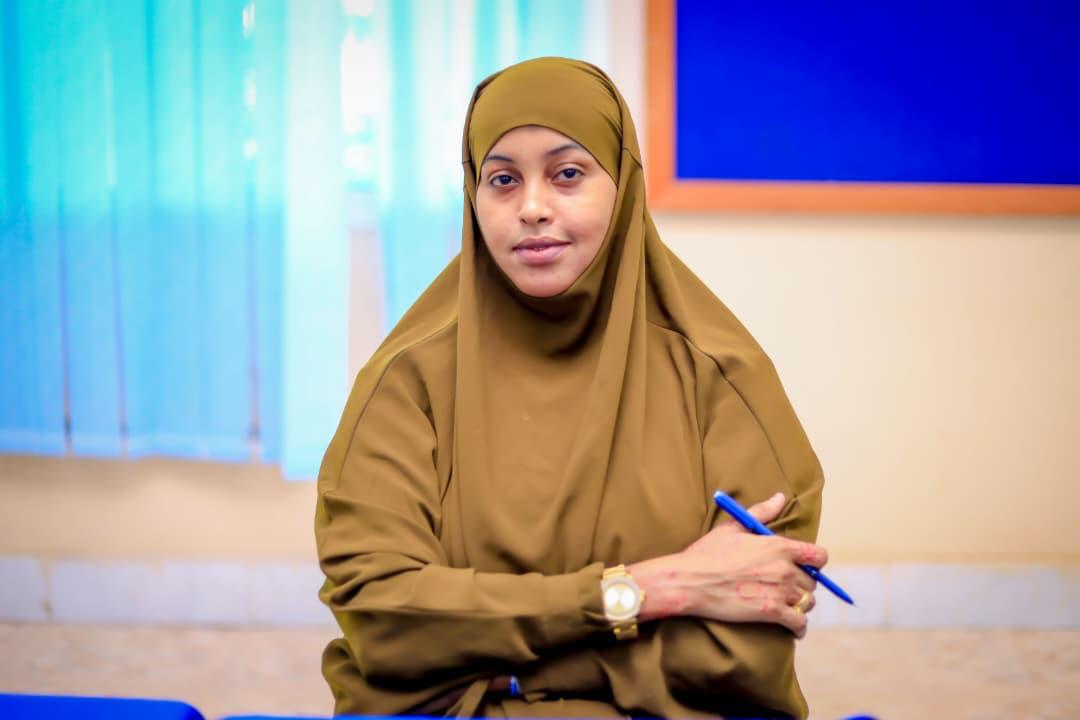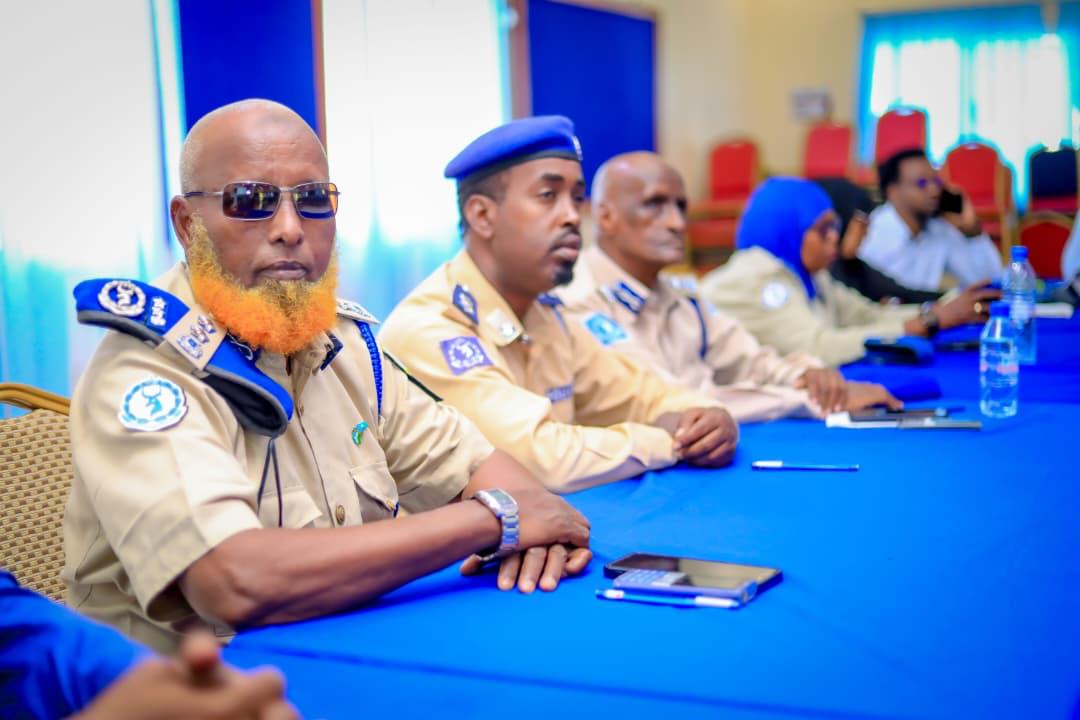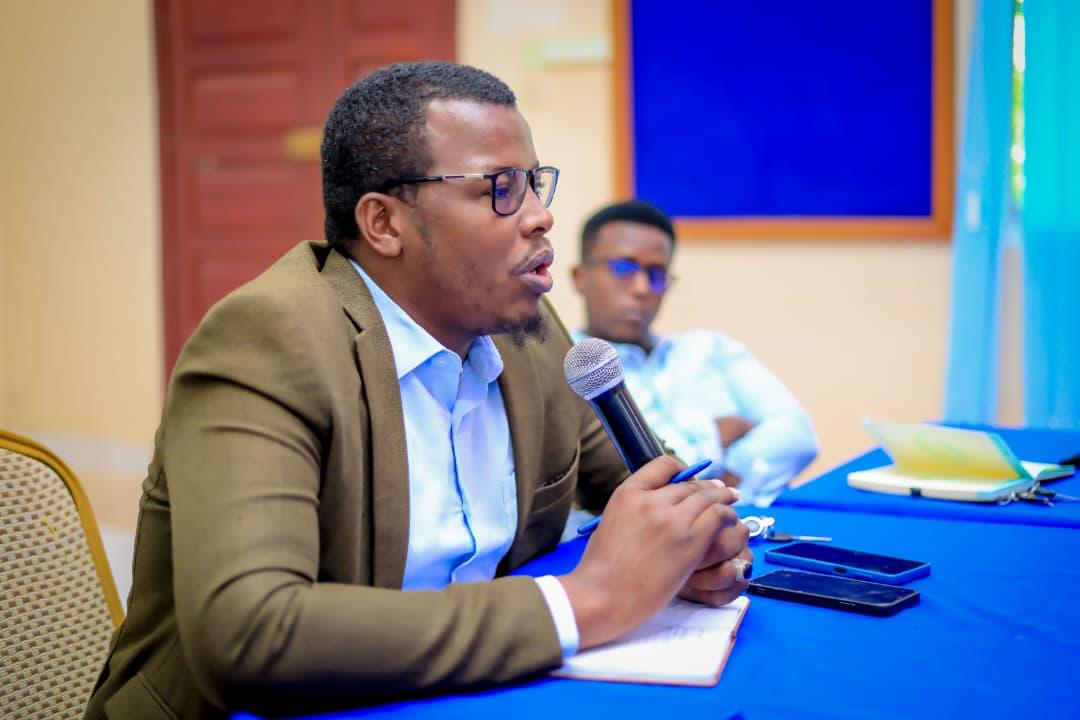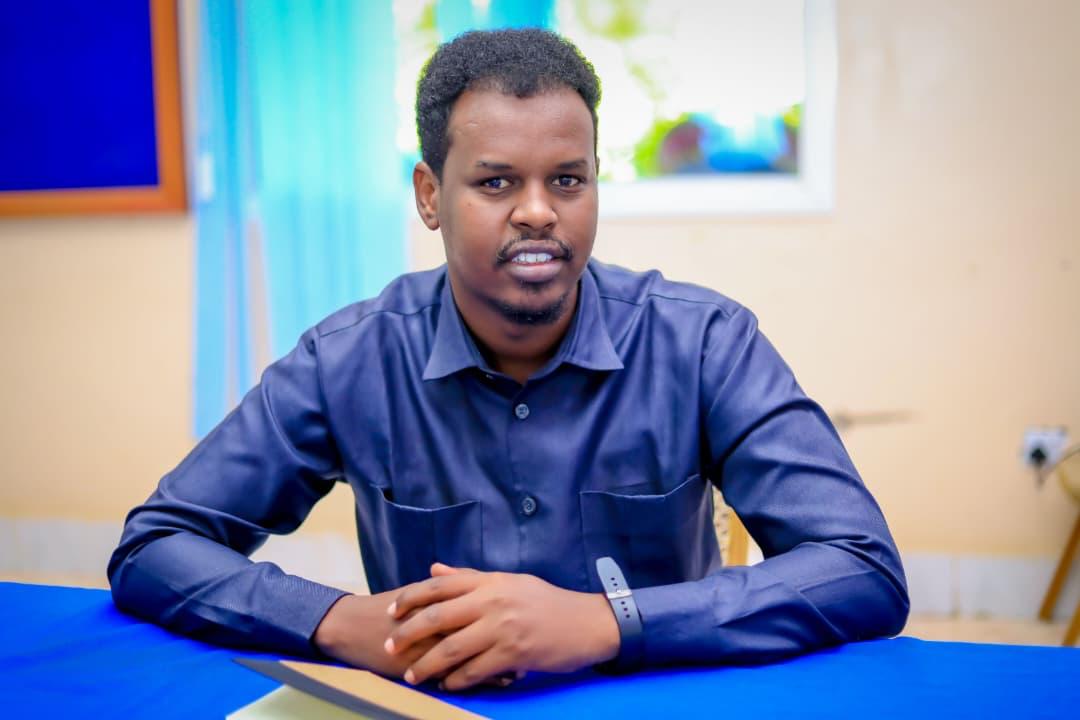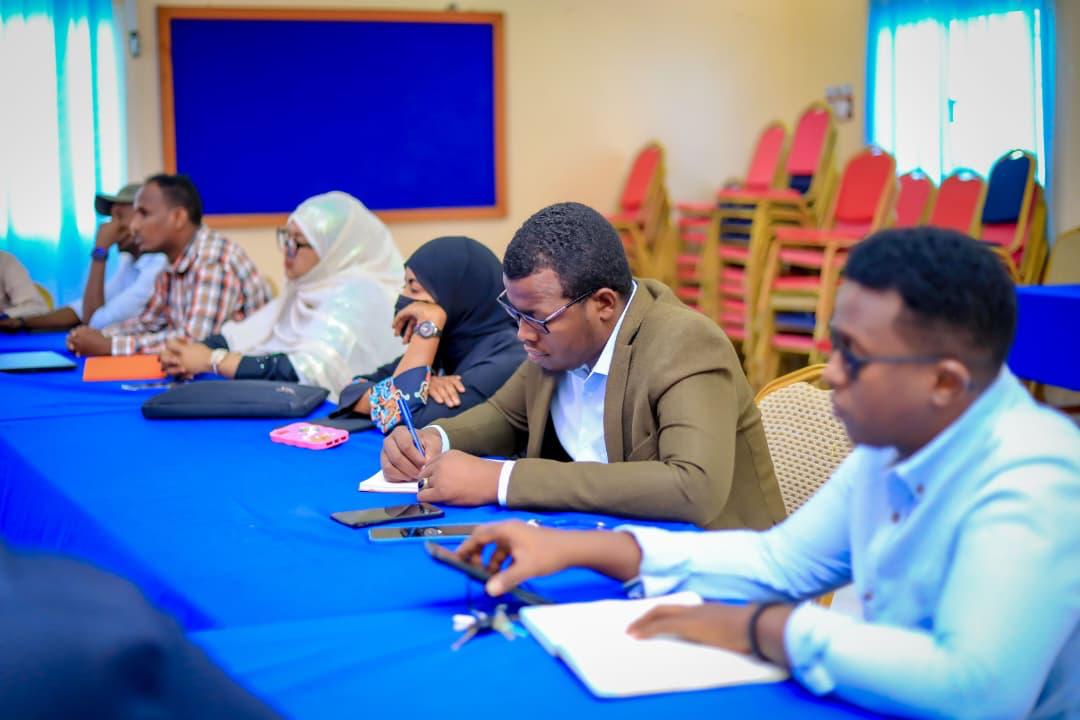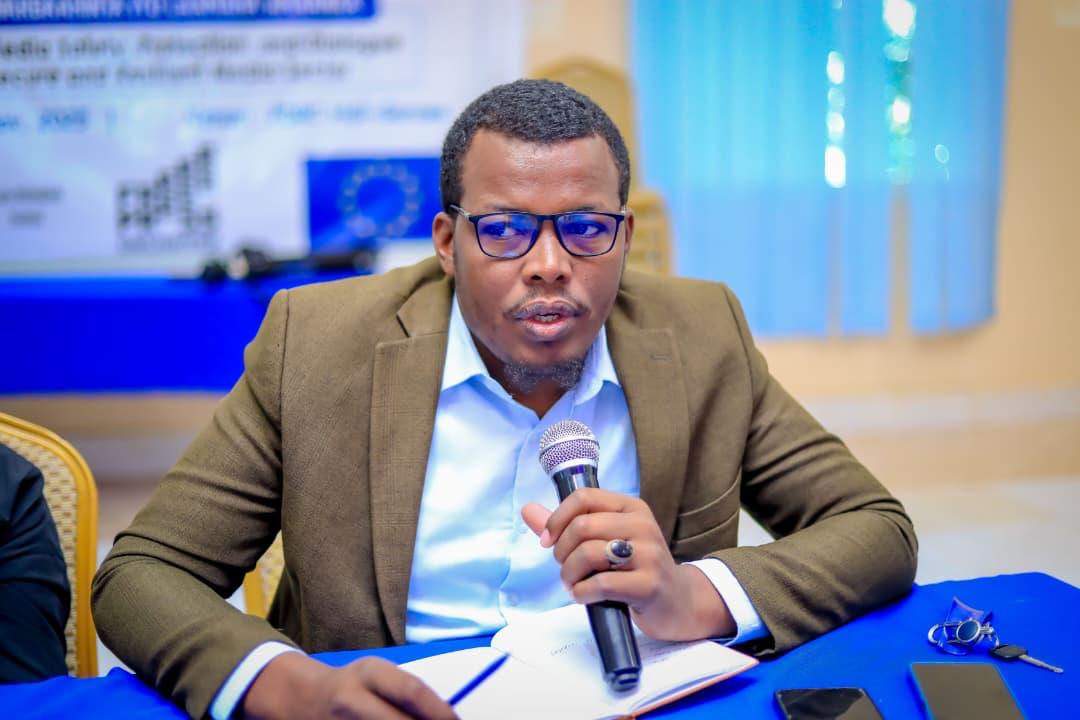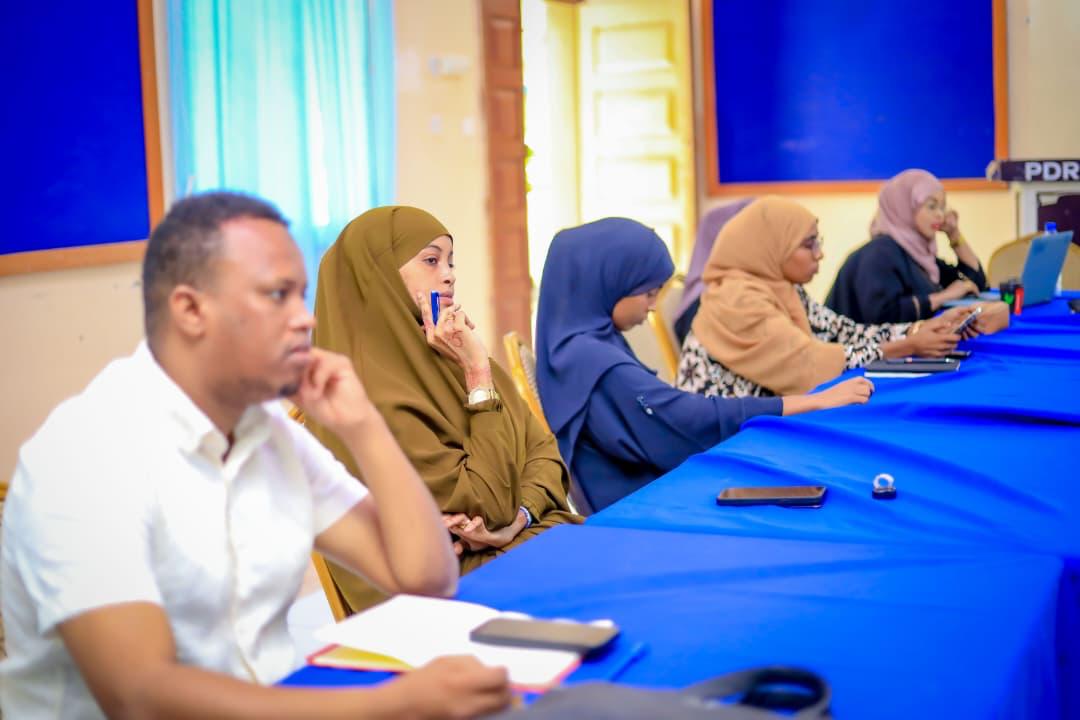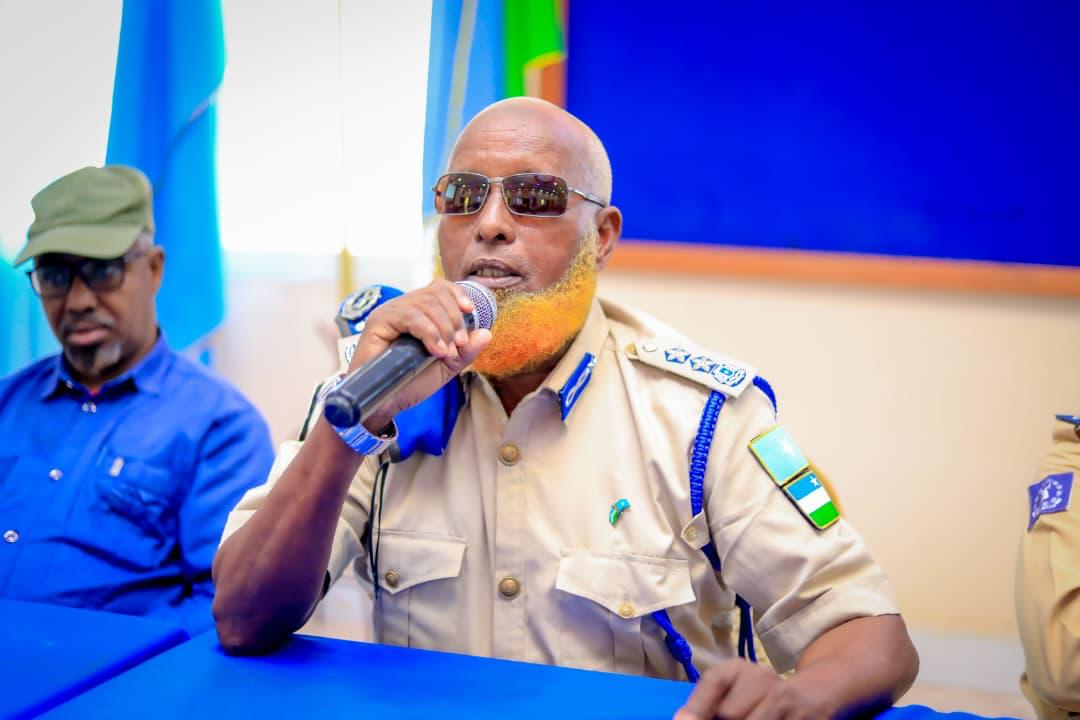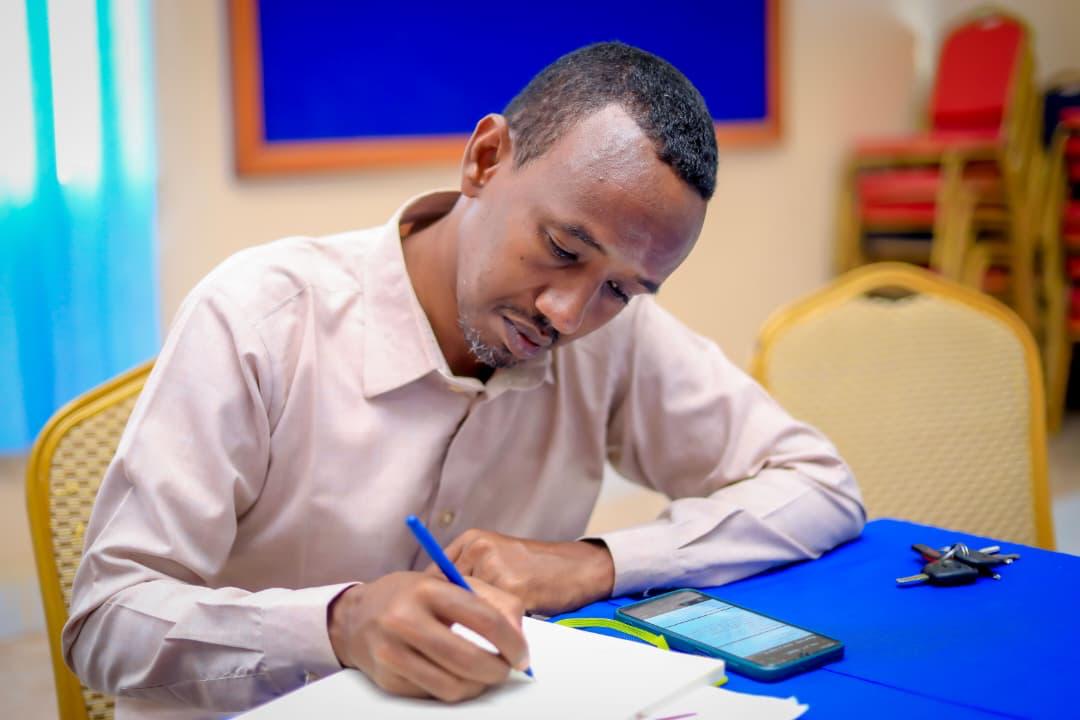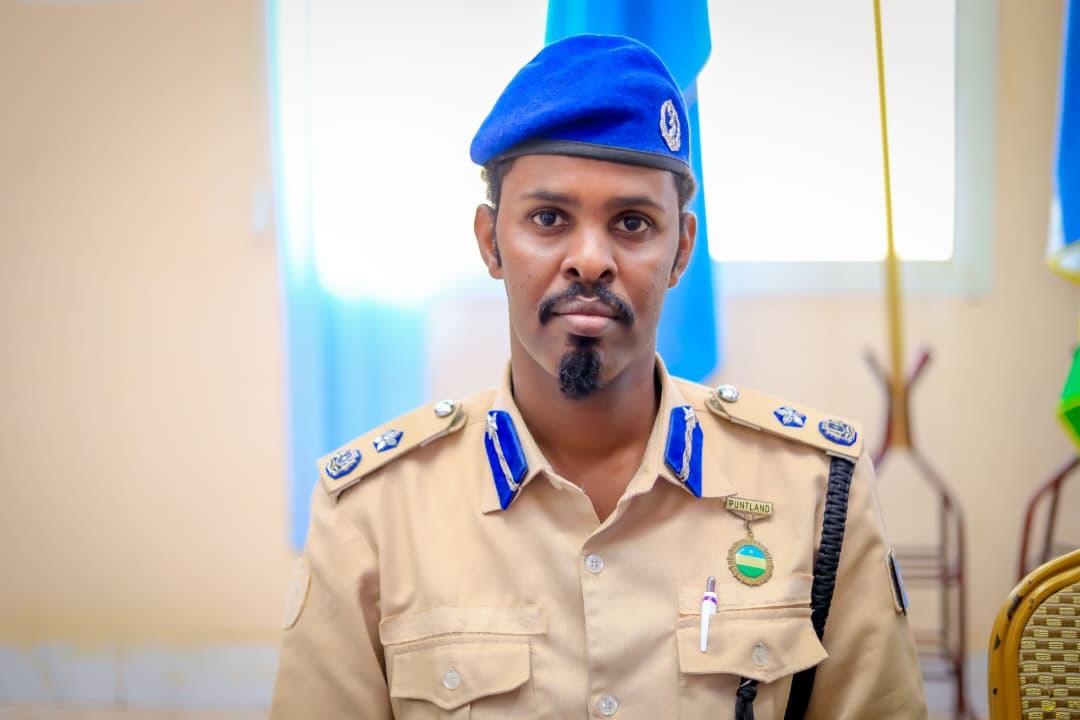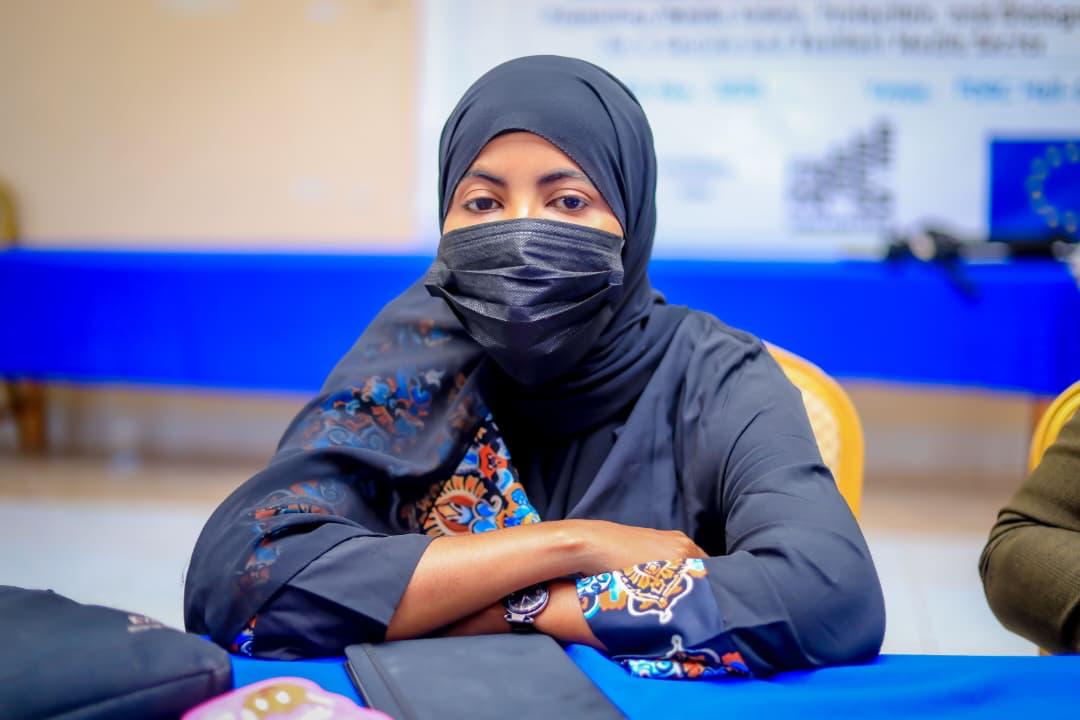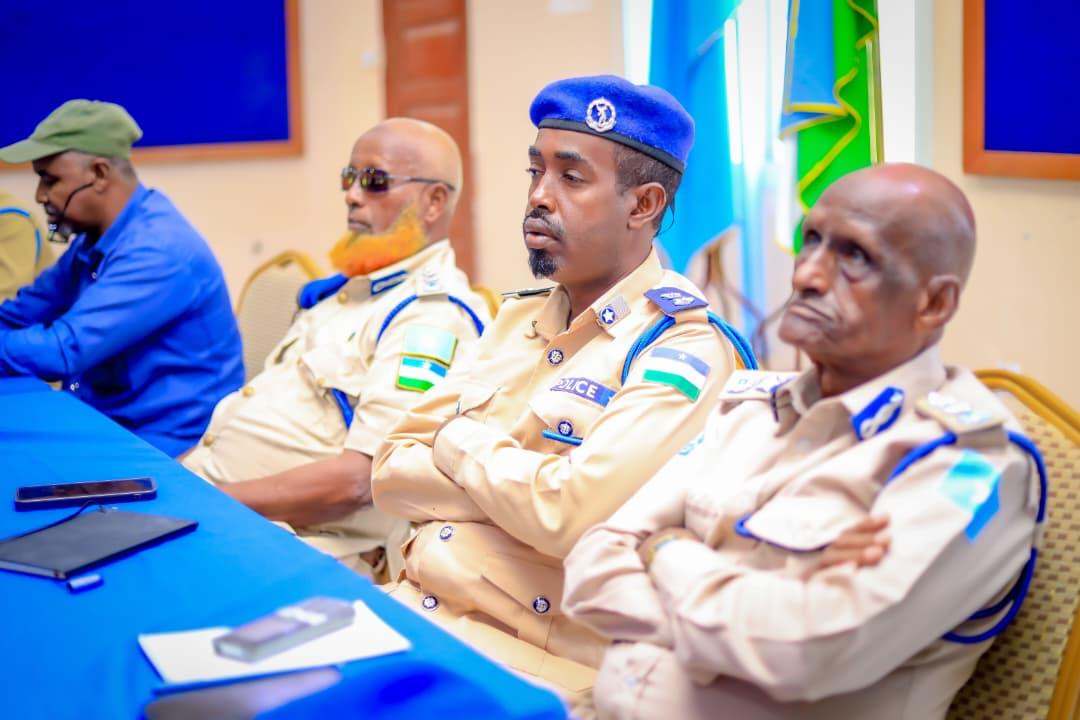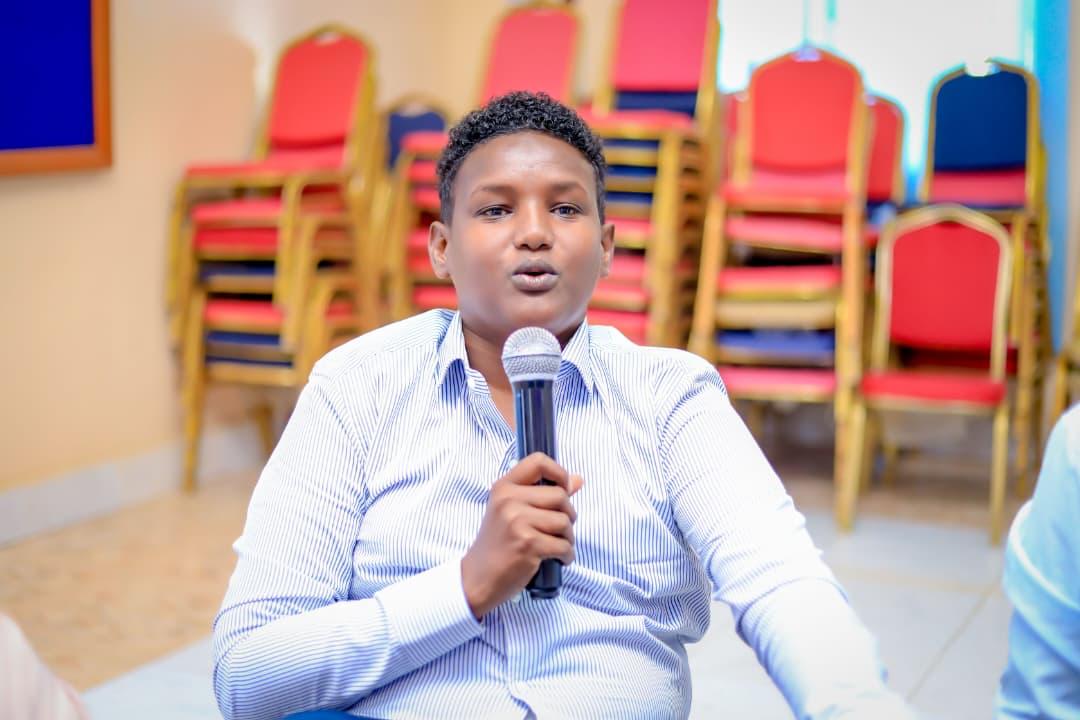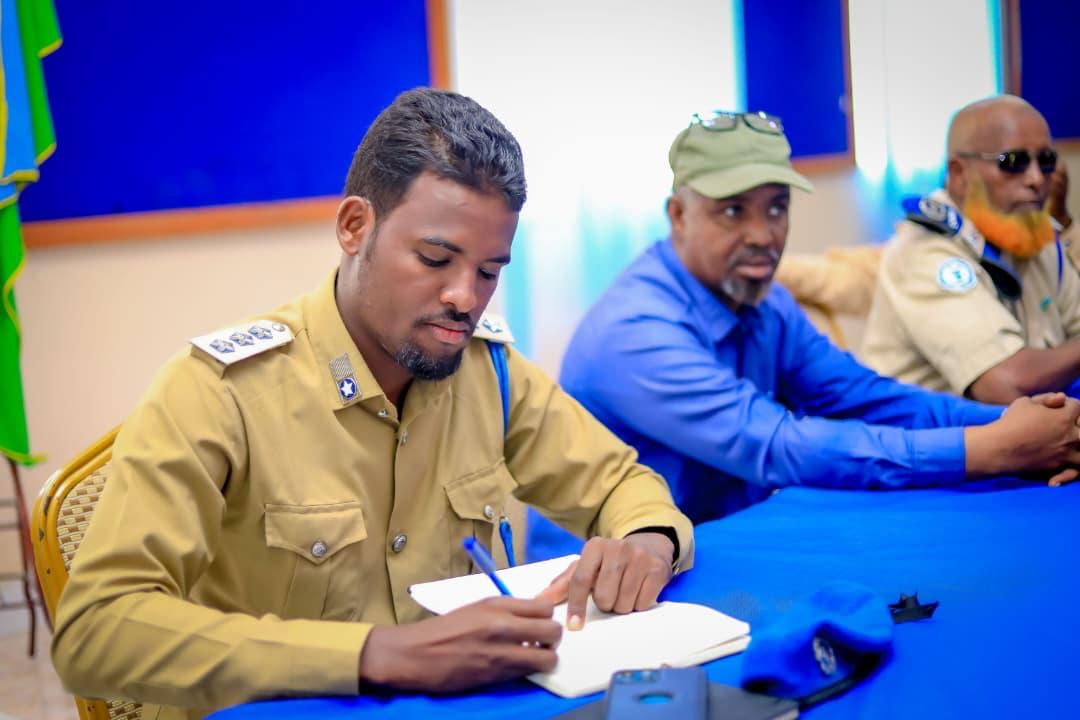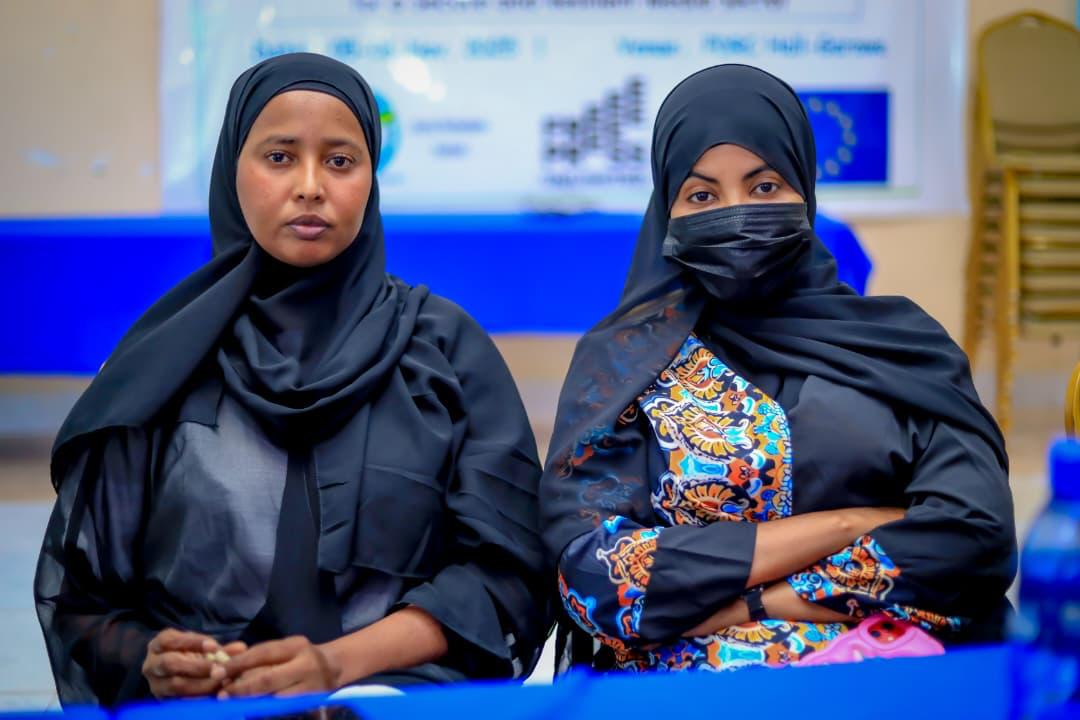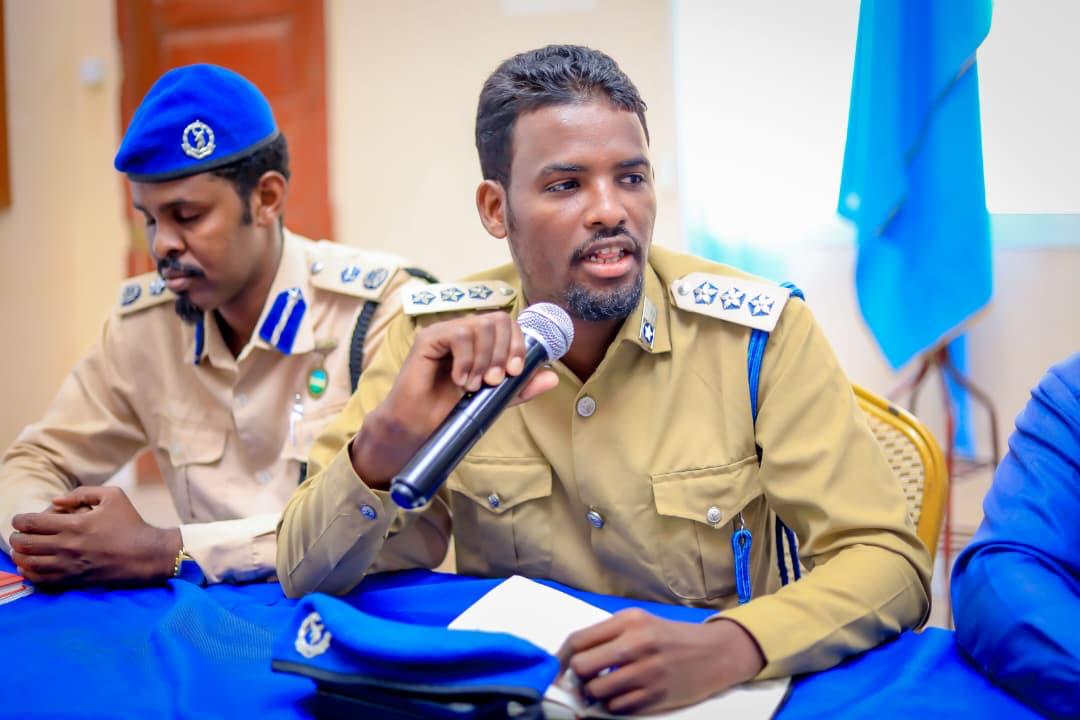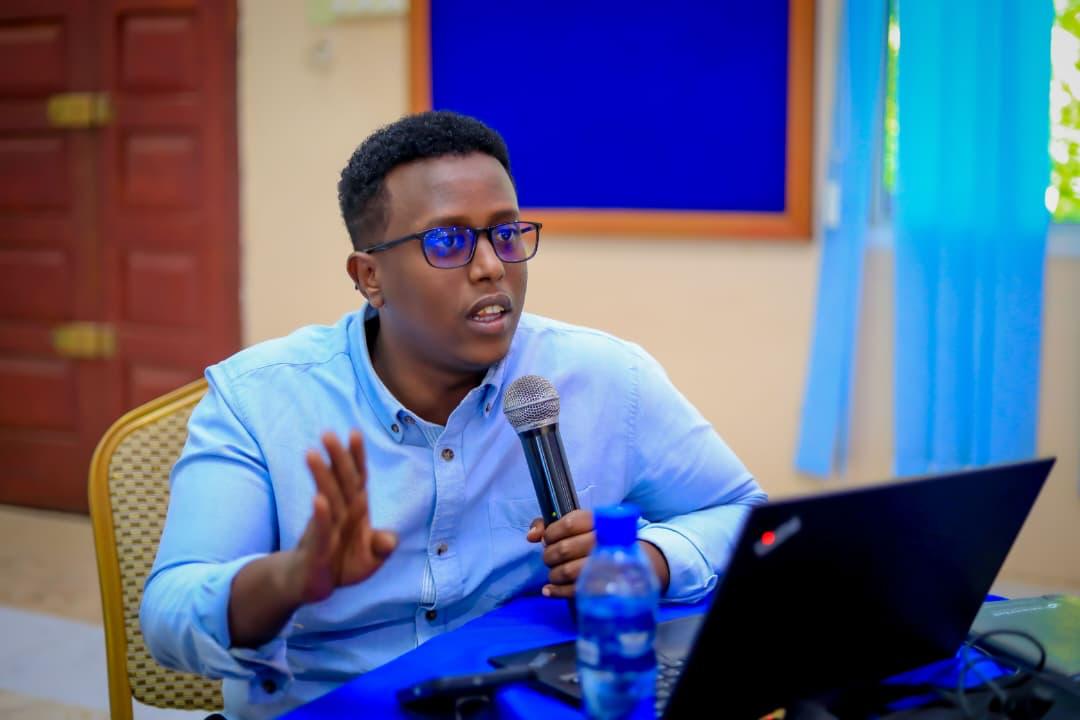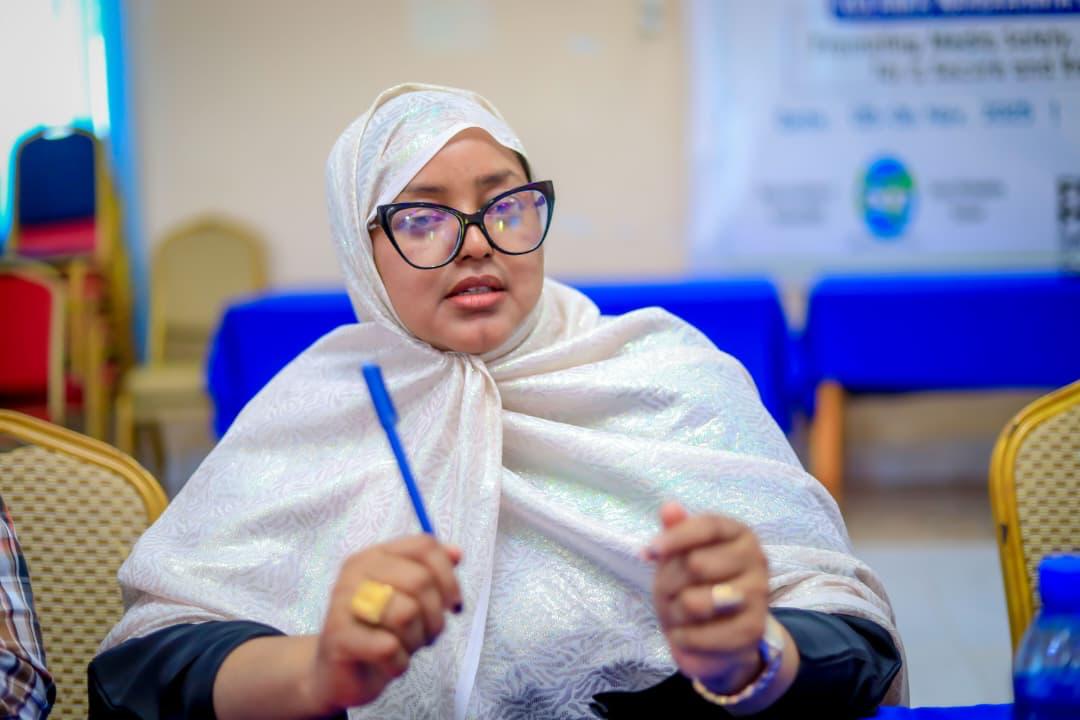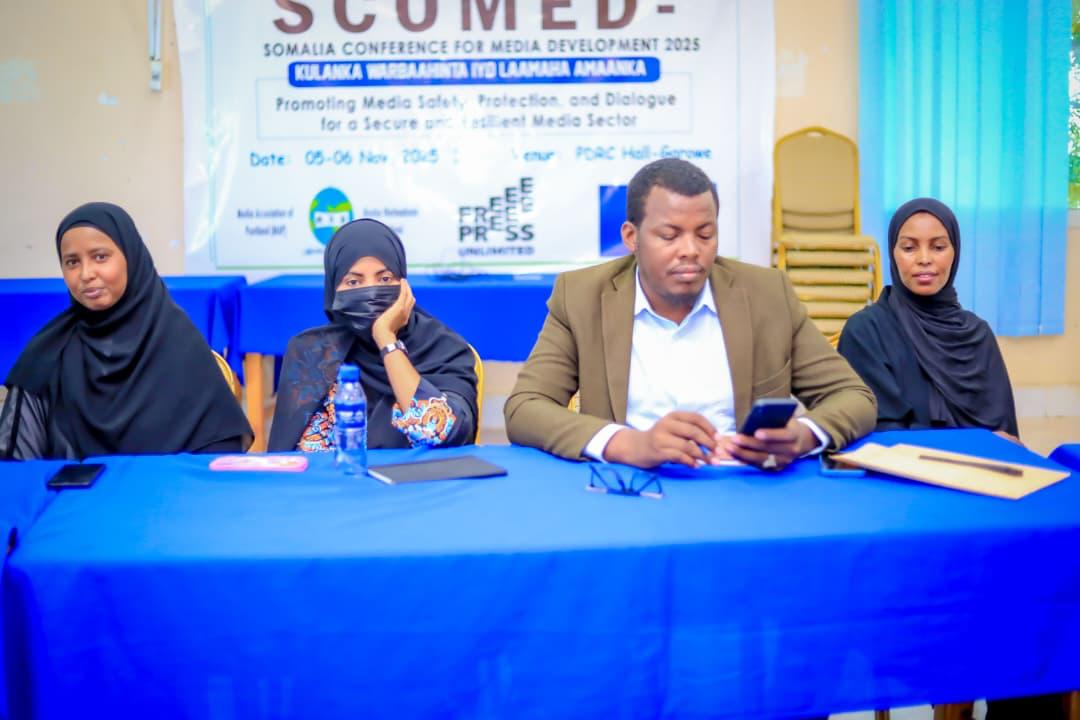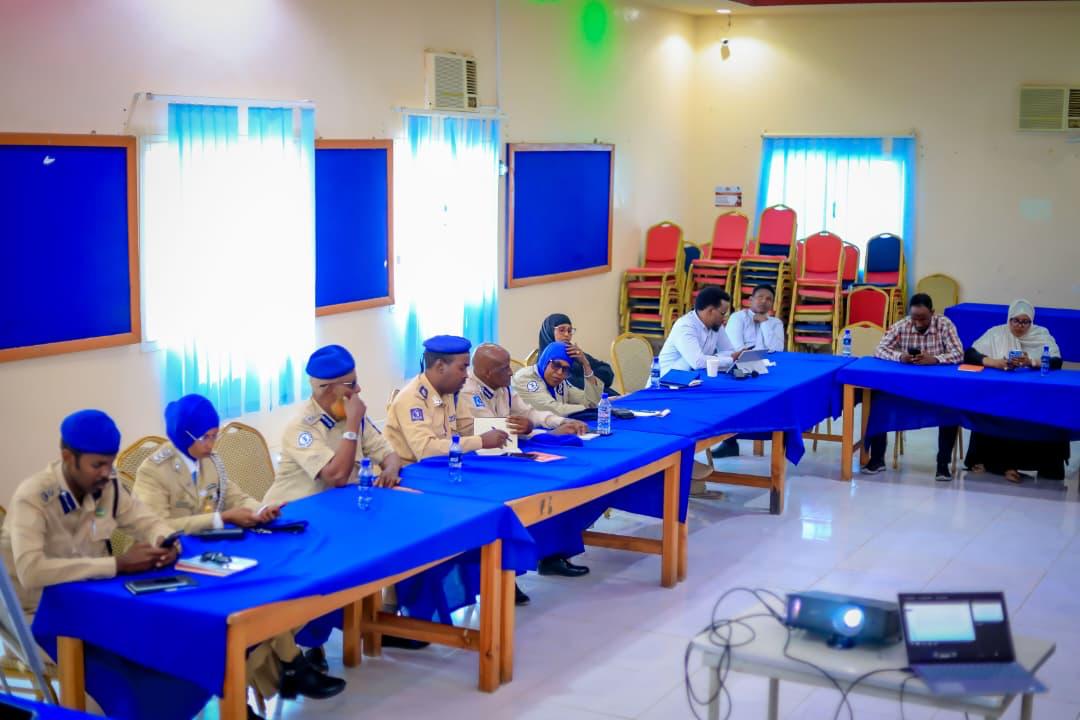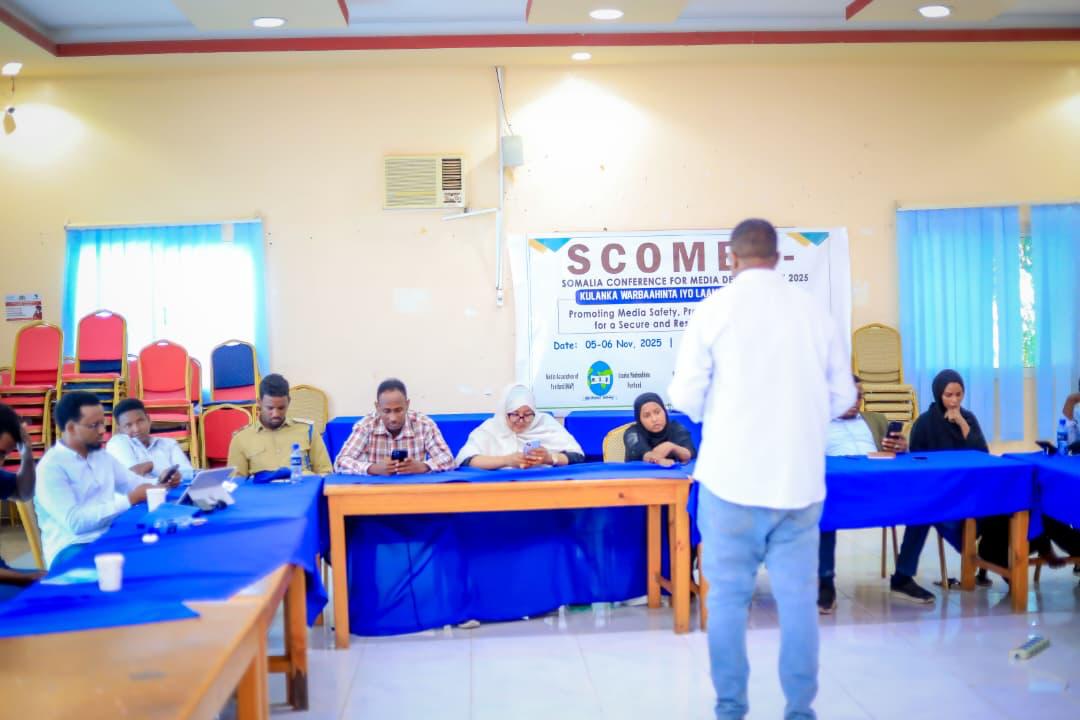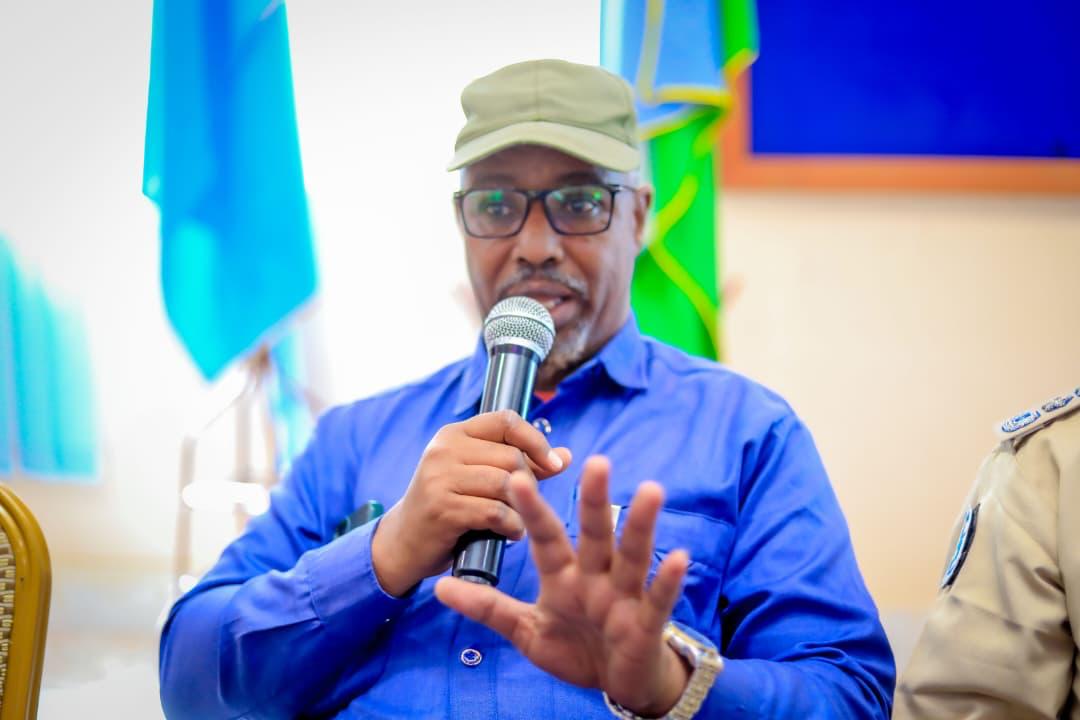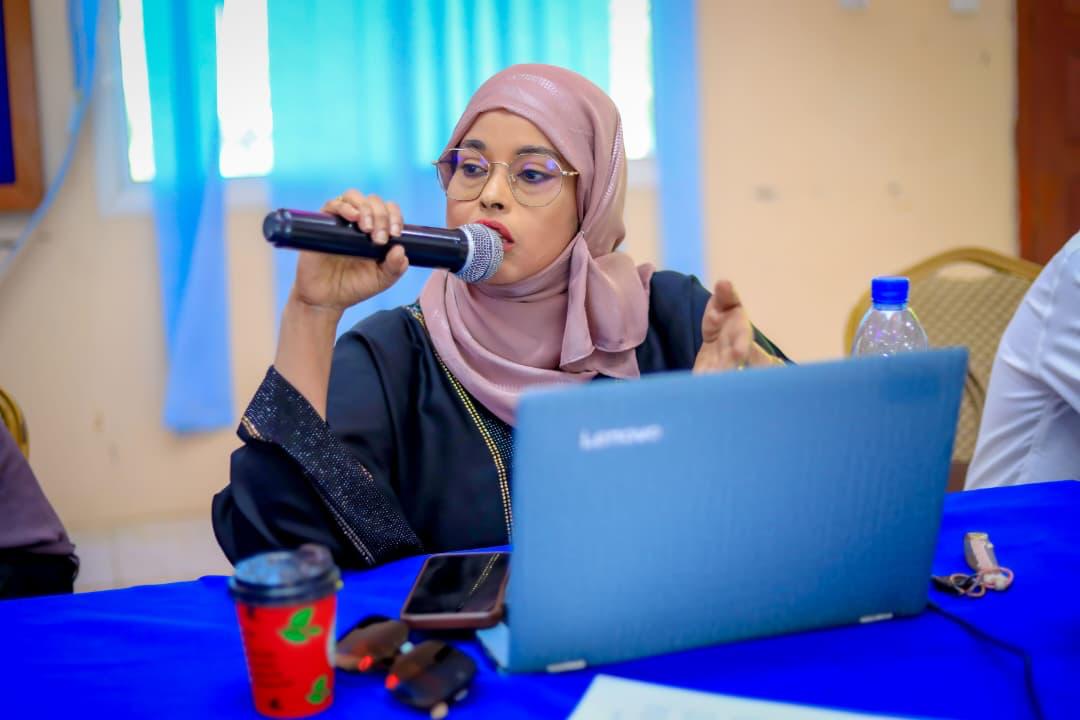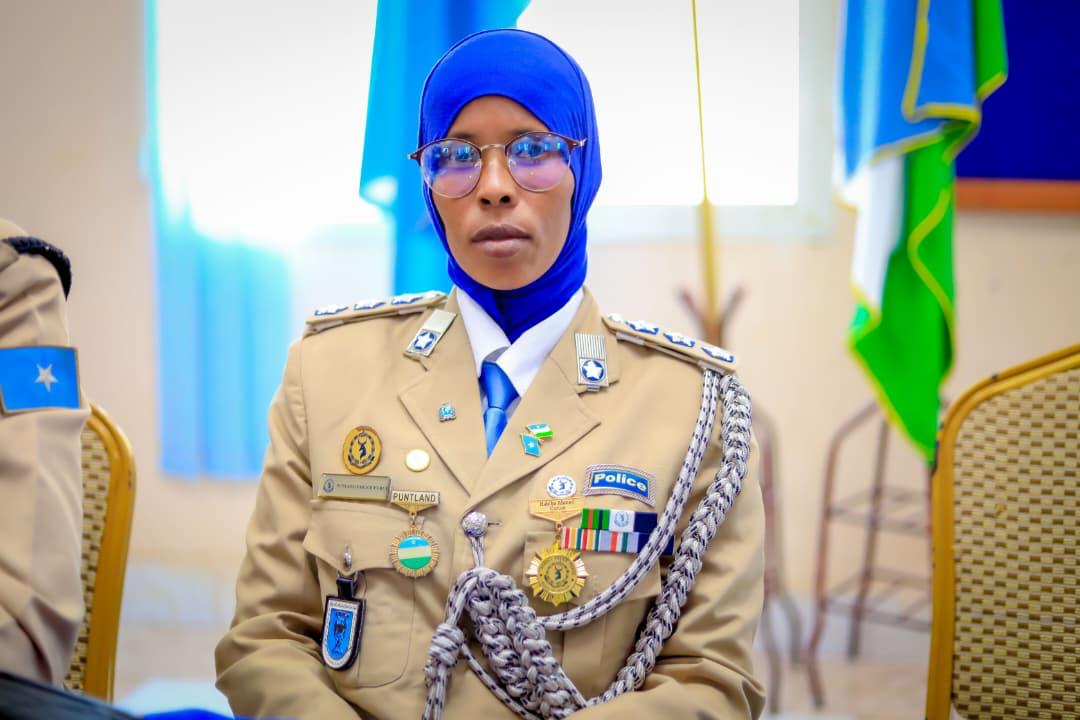Garowe, Puntland, November 2025; The Media Association of Puntland (MAP), in collaboration with Free Press Unlimited (FPU) and with support from the European Union (EU), successfully convened the Somali Council of Media Development (SCOMED) Conference from November 5–6, 2025, in Garowe.
The two-day forum brought together representatives from the Puntland Police, including the intelligence department, alongside media leaders, journalists, civil society organizations, and legal experts.
Participants engaged in a candid and, at times, intense dialogue on press freedom, journalist safety, and state accountability at a time when Puntland’s media environment faces renewed challenges linked to security operations and ongoing humanitarian concerns across the region.
Opening the conference, MAP Chair Mohamed Dahir described the gathering as “a defining space for rebuilding trust and strengthening shared responsibility between the media and security institutions.” He noted that Puntland’s media sector remains one of the most open and resilient in Somalia — a result of sustained advocacy, reform, and cooperation between journalists, civil society, and government institutions. The progress achieved, he said, reflects a more enabling media environment and growing respect for freedom of expression.
However, Dahir cautioned that this progress is now at risk amid rising intimidation and online harassment targeting journalists covering sensitive security, governance, and disaster-related issues. He urged both the media and security institutions to confront these challenges together, stressing that cooperation and dialogue are the only ways to safeguard press freedom and strengthen public trust. “The achievements we have made are meaningful only if we work together to defend them,” he concluded.
“Puntland has made remarkable progress in protecting press freedom,” he said. “However, the growing pattern of intimidation and pressure on reporters covering sensitive issues risks undermining this hard-won progress. The media must remain free, ethical, and fearless, even in times of crisis—because a silenced press cannot serve a nation in transition.”
Throughout the conference, participants debated the balance between national security and journalistic independence.
Security officials voiced concern that some recent media reports on the government’s anti-ISIS operations in the Bari mountains had allegedly exposed sensitive information and operational details. They urged journalists to exercise greater caution, verify facts before publication, and avoid disclosing tactical information that could compromise security or put lives at risk.
Media representatives firmly rejected claims that independent reporting reflects disloyalty, stressing that press freedom is both a constitutional right and a public duty. They emphasized that responsible journalism strengthens—not undermines—security and governance, reaffirming their commitment to objective reporting on conflict, rights issues, and humanitarian concerns.
Participants shared experiences of online harassment and verbal intimidation, warning that fear is re-emerging in Puntland’s media space after years of progress.
Eng. Mohamed Isse Osman emphasized that journalists are patriotic citizens serving the national interest and should be respected and protected for their important contribution to society. He noted that the conference offers a platform for open dialogue to address concerns and strengthen cooperation between the media and security institutions.
“The progress we have achieved in media freedom is the result of dialogue, not distance,” said Eng. Mohamed Isse Osman, Director of the Puntland Ministry of Information. “When journalists and security institutions understand each other’s roles, we build not only trust but also a stronger, safer Puntland.”
Eng. Mohamed highlighted that no journalist has been detained in Puntland over the past five years — a result of continued engagement and mutual understanding between MAP, the media, and law enforcement agencies. He stressed that this collaboration has built trust and accountability while reinforcing the Ministry’s commitment to uphold press freedom, professionalism, and stability in Puntland.
During the conference discussions, MAP presented new data from its Media Monitoring Tool showing a steady rise in violations, with digital harassment accounting for 60% and verbal intimidation 30% of all cases. While most incidents were reported to the police, participants noted gaps in law enforcement’s capacity to address digital crimes and increasing pressure linked to intelligence actors—factors contributing to self-censorship and a narrowing space for independent journalism.
Speaking on behalf of Puntland’s security institutions, the Gen. Aydid Ahmed, Deputy Police Commissioner acknowledged the legitimate concerns raised by the media and pledged stronger cooperation moving forward.
“We are committed to stepping up protection for journalists and ensuring their safety in the course of their work,” said the Deputy Commissioner. “At the same time, we urge the media to play its part in the national effort to eliminate the threat of extremist elements. Responsible journalism is key to protecting the truth and the stability of Puntland.”
Discussions also touched on the broader environment for reporting in Puntland, including the growing complexity of man-made and natural disasters. Participants agreed that journalists play a crucial role in connecting the public with early warning information, humanitarian responses, and climate adaptation efforts — and that they must be supported, not threatened, when performing this service.
By the end of the conference, all sides agreed on practical steps to sustain dialogue and collaboration. A Declaration of Peace between the Media and Security Institutions of Puntland was adopted, signaling a renewed commitment to coexistence, mutual respect, and accountability.
The declaration was accompanied by a roadmap calling for thorough investigations into current and past threats against journalists that have created a chilling effect on the Puntland media fraternity. It also outlined plans for a joint coordination mechanism to facilitate early communication between journalists and security agencies during high-risk reporting periods.
In closing, MAP Chair Mohamed Dahir emphasized that the outcomes of the conference go beyond statements.
“This was not only a dialogue — it was an agreement to act,” he said. “Protecting journalists and defending their independence strengthens Puntland’s stability, transparency, and democracy. This roadmap is our collective responsibility to make that protection real.”
The 2025 SCOMED Conference reaffirmed that press freedom and security are complementary pillars of democratic governance. Through open dialogue, data-driven analysis, and institutional cooperation, Puntland has taken an important step toward ensuring that journalists can operate safely, ethically, and independently — even in the most challenging contexts.
